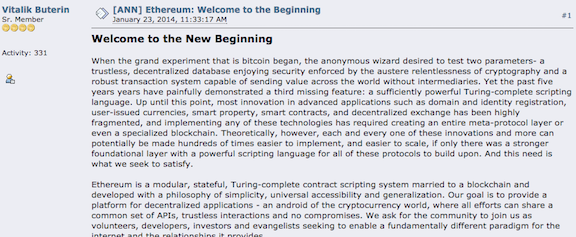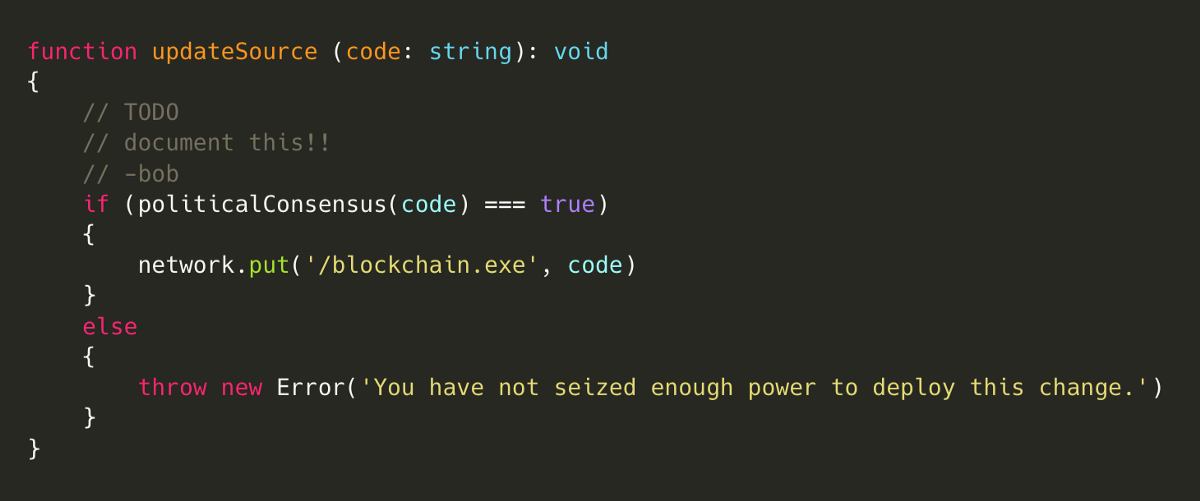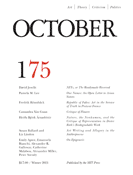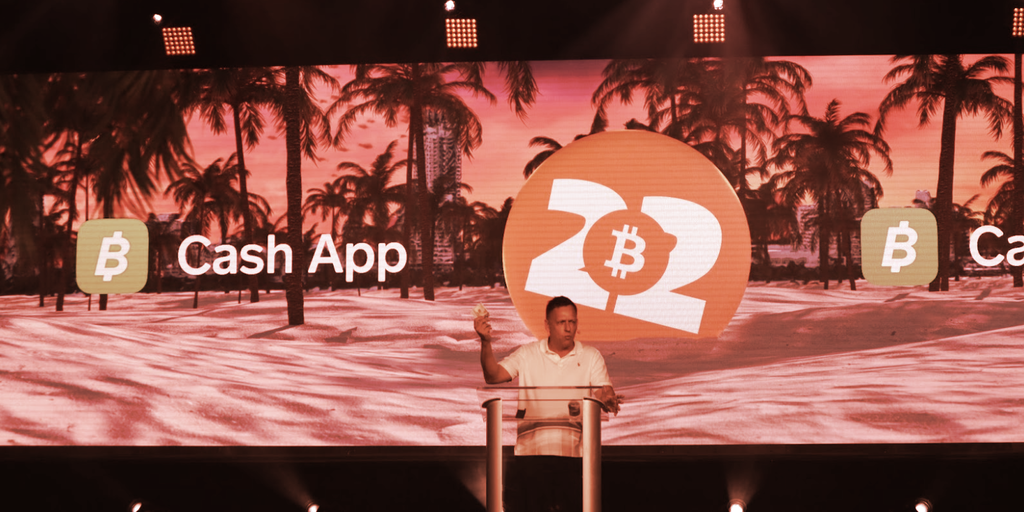Links
Negative
The speculative frenzy for the best-known cryptocurrency keeps on coming back for more.
CI providers like LayerCI, GitLab, TravisCI, and Shippable are all worsening or shutting down their free tiers due to cryptocurrency mining attacks.
Researchers discover illegal content within the distributed ledger, making possession of it potentially unlawful in many countries
Bitcoin, the most popular cryptocurrency in the world, jumped to a four-month high overnight, briefly breaching $5,000 on the Bitstamp exchange. Bitcoin is up roughly 15% on the day and traders are excited because it really seems like nobody learned their lesson during the last cryptocurrency bubble.

How self-proclaimed “pump and dump groups” scam thousands of wannabe altcoin investors.
"Feels a little off-brand," Stensul CEO Noah Dinkin, who first noticed the cryptomining code, said.
Personal Blog
For days now I've been accepting every spam NFT Discord invite I've received, and it's getting dire pic.twitter.com/gizOphHHmD
— Dan Olson (@FoldableHuman) October 7, 2021
Then there's World of Wojak which is just Wojaks and also promising to maybe throw a pizza party or something, IDK, give me money pic.twitter.com/NHUZEbjjTX
— Dan Olson (@FoldableHuman) October 7, 2021
Can't forget Dimez, which is selling virtual bags of crack rocks, which has a needless to say robust roadmap for the future pic.twitter.com/2GVL4ajOXy
— Dan Olson (@FoldableHuman) October 7, 2021
Literally as I posted that I was invited to join the Beverly Hills Car Club whomsts' roadmap uses the acrostic PRNDS (very easy to retain, good marketing) pic.twitter.com/eKSPOg9qc7
— Dan Olson (@FoldableHuman) October 7, 2021
And I have now received a second invite to the Beverly Hills car Club from a different bot.
— Dan Olson (@FoldableHuman) October 7, 2021
Then we've got GenMAP which I think speaks for itself pic.twitter.com/PPEJcaeHrw
— Dan Olson (@FoldableHuman) October 7, 2021
Next up Stick Human which will start development of a knockoff of an iOS game based on a Flash game if they sell all 11,111 sticks for 0.02 Eth (222.22 Eth total, approximately $800k USD assuming you can cash it out in the first place) pic.twitter.com/JXtvc1Hrff
— Dan Olson (@FoldableHuman) October 7, 2021
Long Ween Club was promising to make vinyl toys, but they removed that from the roadmap on the Discord pic.twitter.com/7KRGHGwjbj
— Dan Olson (@FoldableHuman) October 7, 2021
Pro Camel Riders thinks this gif is something that should make you excited and not the biggest own-goal in recent history.
— Dan Olson (@FoldableHuman) October 7, 2021
Also they might make a comic book if people give them $2.4m USD pic.twitter.com/dxXFgo6MRT
Senzu Seeds is selling seeds you can plant in a video game that doesn't exist, but might if they can get a smidge over $1m USD pic.twitter.com/fCIobHLF87
— Dan Olson (@FoldableHuman) October 7, 2021
Bumping Uglies, not merely another unregulated hedge fund, but also maybe a "matchmaking, breeding, and play-to-earn studding game" if people buy $???? worth of a completely different coin on a completely different marketplace from everything else in the ecosystem. pic.twitter.com/mKUik7RjwL
— Dan Olson (@FoldableHuman) October 7, 2021
Apenauts, another hedge fund, but on the SOL coin pic.twitter.com/CKrjXWirXa
— Dan Olson (@FoldableHuman) October 7, 2021
And not remotely last, but certainly least, NFTits, the
— Dan Olson (@FoldableHuman) October 7, 2021
hedge fund/comic book/future movie property whose creators are most likely to show up in my mentions thanking me for the exposure because "any press is good press" pic.twitter.com/JXFuVXBmkO
Honourable mention for tonight goes to Crypto Pump Whales, a literal pump-and-dump scheme that doesn't even pretend it's not and openly admits they can't do it on the big exchanges because they'll get banned for TOS. The top sticky is the admin admitting to getting phished. pic.twitter.com/IQHBFjs9Xz
— Dan Olson (@FoldableHuman) October 7, 2021
Invited to five more NFTs and two more pump-and-dump groups overnight.
— Dan Olson (@FoldableHuman) October 7, 2021
Cash Cows, cows you milk for cash.
Long Neck Cartel, racist giraffes.
Pug Force, pugs that are cops.
Gorilla Club, gorillas.
And HoodPunks which, you know what, I’ll just leave this here: pic.twitter.com/nCA5lgVwYd
16 more invites just this morning. I'm going to need to start a spreadsheet to actually keep track of these
— Dan Olson (@FoldableHuman) October 7, 2021
I didn't stop so much as give up pic.twitter.com/Xi90KXejik
— Dan Olson (@FoldableHuman) October 7, 2021
A thing that’s somewhat surprising about this degree of laziness. Only two of these have something that can really be described as a tangible attached product. Only one promising a game even bothered to have mock-up screenshots. This is surprising to me because...
— Dan Olson (@FoldableHuman) October 8, 2021
Logic would dictate that the modicum of effort it requires to mock up a preview of your game/comic/animation would help you stand out in a high competition environment, doubly so when basically no one is bothering.
— Dan Olson (@FoldableHuman) October 8, 2021
We know it’s a low hurdle as even scam kickstarters manage it.
The implied answer is buyers don’t actually care. Evidence of work on an end product doesn’t improve your odds of success, it’s an irrelevant factor in the calculus of the market.
— Dan Olson (@FoldableHuman) October 8, 2021
What *does* seem to be effective (or at least perceived as effective) as it’s regularly employed, is a promise of charitable donations, specific or vague.
— Dan Olson (@FoldableHuman) October 8, 2021
It speaks to market anxieties about appearing wealth-obsessed, parasitic, and destructive.
And when in doubt just give away a car. pic.twitter.com/OHer7EOTYa
— Dan Olson (@FoldableHuman) October 8, 2021
I haven't really focused on it yet, but Stoner Cats, one of the few that seemingly does have an actual product, (a cartoon voiced by Mila Kunis, Chris Rock, Jane Fonda, Ashton Kutcher, and others) only scrapes across that line very barely with a single 5 minute episode.
— Dan Olson (@FoldableHuman) October 8, 2021
The singular review I've found of the episode sums it up as largely unremarkable, like something you'd find on 2013 Newgrounds from a decent animator who just isn't very funny.
— Dan Olson (@FoldableHuman) October 8, 2021
It is so unmemorable that no one has bothered to bootleg it.
It costs at least $1000 to access.
But don't worry, it's all decentralized.
— Dan Olson (@FoldableHuman) October 8, 2021
Minus, I guess, the servers that the video is hosted on. And the server that does the authentication. And the web portal that allows you to watch the video. And the Discord chatroom.
But the database that holds the note saying you have permission to watch the video, that's decentralized! no one can take that away!
— Dan Olson (@FoldableHuman) October 8, 2021
Unless the miners who keep the database updated get bored or move on and stop updating it. Or a new version comes out and breaks it.
I just remembered I haven't highlighted Betting Kongs, which is currently in the running for "most likely to actually go to jail" b/c they love gambling so much they want their own casino. They have no experience running a casino. It's an Always Sunny plot, to the detail. pic.twitter.com/zsuYLv9jQT
— Dan Olson (@FoldableHuman) October 8, 2021
Like, gosh, it really is curious that only a handful of large companies, globally, are able to navigate the labyrinthian rules involved in gambling across international borders. I'm sure that's purely because they just haven't put enough gumption into it.
— Dan Olson (@FoldableHuman) October 8, 2021
I showed this pitch to a friend who did work on the backend of online casinos, specifically interfacing with compliance, and she just went silent for a bit before "they would literally face fewer consequences if they just stole the money instead."
— Dan Olson (@FoldableHuman) October 8, 2021
NFT Worlds is selling "a string of numbers compatible with Minecraft's world generator" and not Minecraft seeds pic.twitter.com/pCsf2JXd9o
— Dan Olson (@FoldableHuman) October 9, 2021
This thread from Cory Doctorow is psychologically relevant in the way the devs frame their work as just-so-happening to produce results compatible with and identical to Minecraft's world gen rules. https://t.co/VAwawk1J0s pic.twitter.com/gqR51AGI2I
— Dan Olson (@FoldableHuman) October 9, 2021
Anyway, fashionista chickens. pic.twitter.com/UVxw5gEmMW
— Dan Olson (@FoldableHuman) October 9, 2021
Stretch Goal: make an MMO pic.twitter.com/MLMrk9iP9p
— Dan Olson (@FoldableHuman) October 9, 2021
I'm gonna go rampage mode today, I swear. pic.twitter.com/hZKcUxhRwf
— Dan Olson (@FoldableHuman) October 9, 2021
Okay, you know how being a F2P player in games like Hearthstone often involves a lot of frustration from being frequently matched against players with dramatically better decks?
— Dan Olson (@FoldableHuman) October 9, 2021
Now imagine the buy-in just to get to *that* level was north of $450. pic.twitter.com/zpcBVyzjVO
Something that tickles me is the way that the projects will just describe a vision of a truly awful game.
— Dan Olson (@FoldableHuman) October 9, 2021
"Imagine if you could rent your sword to other players!"
"Imagine if holding a Gen 1 mon made you five times as powerful!"
"Imagine if you could sell your rare drops for $!"
An extremely relevant case study is Diablo 3's Real Money Auction House.
— Dan Olson (@FoldableHuman) October 9, 2021
If powerful items can be freely traded amongst the entire player base then drop odds need to be balanced around the entire player base. Which means your average play session is deeply unsatisfying.
Basic 1/10 stuff becomes 1/1000.
— Dan Olson (@FoldableHuman) October 9, 2021
Truly rare items that in a compartmentalized environment would be 1/10,000 odds need to be 1/1,000,000,000.
You know someone who got something good once, but that's about it.
"Imagine if you could rent another player your good sword"
— Dan Olson (@FoldableHuman) October 9, 2021
Okay, now imagine a game where you need to rent your sword.
Implicit in all the pitches, baked into the FOMO, is "get in now, get in early, so that if this takes off, YOU can be the boot stepping on the neck!"
— Dan Olson (@FoldableHuman) October 9, 2021
Watched this guy spend $37,000 on a plot of land in Axie. Seemed suspicious for an account with 0 Twitch subs and 800 Twitter followers.
— Dan Olson (@FoldableHuman) October 10, 2021
Turns out their whole deal is running a sweatshop inside the game. pic.twitter.com/3QedsWkNRn
Axie is probably the most respectable enterprise in this whole endeavour, in the sense that they have a working game that exists, and I pretty much instantly stumbled into a sub-scam just by checking Twitch to see what the $450 game was like.
— Dan Olson (@FoldableHuman) October 10, 2021
Not that, you know, Axie isn't also built on fraud.https://t.co/bp0wo4OroH
— Dan Olson (@FoldableHuman) October 10, 2021
There is, deep in the core, a foundational disconnect in values. By volume, compared to "line goes up" dickheads, the amount of stuff in the space that's driven by artists, tinkerers, and people who want to make neat things regardless of how much it can be sold for rounds to zero pic.twitter.com/mkXlngUF3T
— Dan Olson (@FoldableHuman) October 10, 2021
A lot of the hay made over all this will use phrases like "internet native", meaning that it rises out of the vernacular culture of the internet at large, but it really doesn't. pic.twitter.com/knQPbz7q0S
— Dan Olson (@FoldableHuman) October 11, 2021
It is overwhelmingly driven by finance bros and trust fund kids who know little, if anything, about the communities that they claim they're "improving," leading things like spending $3000 on a plan to house flip a virtual plot of land in a video game they don't understand. pic.twitter.com/42EMyZ8kV0
— Dan Olson (@FoldableHuman) October 11, 2021
Most of the NFTs being pushed by brands and artists aren't internal products. Teams approach them, offer to do all the dev and just say "all you need to do is sign off on the art."
— Dan Olson (@FoldableHuman) October 11, 2021
And if they burn your audience they slink off into the night.https://t.co/ttnu4JRcT4
And it has to be driven by those people, because every meaningful state change requires paying Gas, a processing fee to the people who run the computes that keep the ledger updated, and Gas is auctioned on a highest-bidder-first system. It's pay-to-play at all levels. pic.twitter.com/z8aNSybSE4
— Dan Olson (@FoldableHuman) October 11, 2021
Since there's no cap on Gas the average price of just doing a transaction fluctuates between $15 and $300, and the snap price can be thousands.
— Dan Olson (@FoldableHuman) October 11, 2021
I have spent days pondering "well what if you took the interesting technology and discarded the obsession with exclusivity?" and Gas is the reason why I ultimately discard it. Every neat idea cooked up in NFTs, which are scant few, can be replicated faster, cheaper, and fairer.
— Dan Olson (@FoldableHuman) October 11, 2021
The Immutable Blockchain. All hail code.
— Dan Olson (@FoldableHuman) October 13, 2021
Can't wait to dump all my critical documents and records into this ecosystem. pic.twitter.com/HQtLGUD1MB
To explain what happened here, NFT Worlds released one part of their application allowing you to "explore" your purchased Minecraft world, and it provided a backdoor for someone to replace their worlds with "rarer" worlds and trick people into buying them.
— Dan Olson (@FoldableHuman) October 13, 2021
lmao "the problem is it wasn't EVEN MORE on-chain"
— Dan Olson (@FoldableHuman) October 13, 2021
Jesus Christ, you loser, it's software not fucking magic.https://t.co/ETtWlVCnPd
Crypto nerds have been itching for the opportunity to put things like real estate deeds and medical records "onto blockchain" for a decade now, insisting that the best place to store these is an open air database.
— Dan Olson (@FoldableHuman) October 13, 2021
The entire exercise is fundamentally sociopathic.
Apologists wouldn’t shut up about reading The Infinite Machine, so I grabbed a copy off a decentralized P2P network like a good Web3 netizen, and while it’s written like hagiography it functions as a list of crypto’s many philosophical failures.
— Dan Olson (@FoldableHuman) October 13, 2021
“We need to solve transaction fees!” - crypto has comical transaction fees
— Dan Olson (@FoldableHuman) October 13, 2021
“We need to support the unbanked of the world!” - the UX is miserable and hostile to non-programmers
“We’ll replace Argentina’s peso!” - Argentinians use BTC only as a portal to convert pesos to USD.
I'm not having a good day with this, the endless lofty claims that are always "just around the corner" while the demonstrable product is just all the destructive exploitation and illusory speculation of the current system magnified and accelerated, I'm pissed off.
— Dan Olson (@FoldableHuman) October 13, 2021
Ah, yes, the every day problem of moving large sums of money across borders pseudonymously. Truly fixing the problems of the financial system and not merely working around the regulations already well-off people find obnoxious. pic.twitter.com/T4oznTOQbU
— Dan Olson (@FoldableHuman) October 13, 2021
Every pitch of NFT gaming in the wake of Steam’s ban on NFT/blockchain games is like
— Dan Olson (@FoldableHuman) October 16, 2021
1 - tokenize everything in your game
2 - ?????
3 - Metaverse! pic.twitter.com/k1lY1DiPPM
It all treats the actual game dev as a trivial element that can just be willed into existence. What happens when, one generation in, game devs decide they can’t be bothered to recreate art assets for your Drunk Ape Butthole Club exclusive, owned by literally one person?
— Dan Olson (@FoldableHuman) October 16, 2021
Lofty claim that they become building blocks, but they really don’t. They’re not even game assets, they’re the concept of a game asset. The NFT of a chair in The Sims does not magically confer a properly modelled chair with a working hit box for Skyrim.
— Dan Olson (@FoldableHuman) October 16, 2021
What happens when devs are like “we’re not letting you transfer your WoW gold here because it would annihilate our game’s economy”?
— Dan Olson (@FoldableHuman) October 16, 2021
Sorry, you can’t port your Dickthrusher Sword, we expect you to progress through our progression that we designed with intent.
Once you take “I want my money to make me overpowered in every game, simultaneously” off the table, what are you left with? A persistent player profile? A shared cash shop currency?
— Dan Olson (@FoldableHuman) October 16, 2021
The main thing that remains is "I want to be able to sell in-game stuff for $." And, as we see with Axie Infinity, once you open that door you'll have people setting up industrial monster farming cartels before you even have a meaningful casual player base.
— Dan Olson (@FoldableHuman) October 16, 2021
The Llama Pass is a great demonstration of how completely disconnected you can be from reality and still be taken seriously by the crypto community. Like promising to give away "3-5 Teslas" as a lower stretch goal than publishing the rarity distribution *that they built.* pic.twitter.com/9FGH1zGELH
— Dan Olson (@FoldableHuman) October 20, 2021
Serenity now. pic.twitter.com/yGsl8trpWw
— Dan Olson (@FoldableHuman) October 20, 2021
Crypto Astronuts launched their minting on Saturday, but only sold 1262 of their planned 10,000 in the first 24h, working out to ~$350,000 but far short of the $2.8m target.
— Dan Olson (@FoldableHuman) October 20, 2021
Failure to sell out in the first day is project death because the system is self-competing.
Everyone is looking to flip, it's a question of how fast. If the average resale falls below the mint cost, the project dies. The buyers, unable to re-sell their Astronuts for even 1/4 what they paid for them, have spent a days debating ways to manipulate the price back up.
— Dan Olson (@FoldableHuman) October 20, 2021
The project leaders have done their part to manipulate the price, "burning" the un-minted Astronuts by altering the mint starting time to 16 October 2099, but the floor price still sits at ~$90, well below the $300 mint cost.
— Dan Olson (@FoldableHuman) October 20, 2021
The Discord chat is deeply depressing, hours and hours of people alternating between tepid "this is really about community, yeah?" pep talks and complaining about the floor price. Because none of them are there for the community, they're only there for the price.
— Dan Olson (@FoldableHuman) October 20, 2021
Everyone pitching this as a great, dynamic alternative to something like Kickstarter or Patreon is full of it. You could not ask for a more toxic, disloyal audience to try and fund a project through.
— Dan Olson (@FoldableHuman) October 20, 2021
Book Twitter has been alight all day with Realms of Ruin, an NFT-based fanfiction contest spearheaded by several bestselling YA authors that managed to go through the entire cycle from announcement to cancellation in about 5 hours. pic.twitter.com/SL6UQ5KOEe
— Dan Olson (@FoldableHuman) October 21, 2021
There are a lot of reasons for pushback, the project was aimed at minors, the copyright issues are myriad, the idea wasn't very good, but I think the root is accidentally elucidated in Julie Zhuo's description (from a now-deleted Medium post)https://t.co/EbAQJ1Nm2x
— Dan Olson (@FoldableHuman) October 21, 2021
The philosophy here, a story that is community-created and owned, is philosophically incompatible with crypto, which operates, intentionally and by design, on strict notions of property and possession. Collective ownership, formal or colloquial, is antithetical to crypto.
— Dan Olson (@FoldableHuman) October 21, 2021
For the record if any of the authors involved want to talk, I have so many questions. How was this pitched to you, by who? How were you told it would function? What did you believe you were selling? What did you imagine readers would think?
— Dan Olson (@FoldableHuman) October 21, 2021
This is a good rundown of the Realms of Ruin situation, though there's a couple paragraphs I want to highlight because I think they miss the point in a way that speaks to the broader state of things.https://t.co/5Ho08RQvTy
— Dan Olson (@FoldableHuman) October 26, 2021
This, for example, is largely fantasy and also just wrong. There's no intrinsic chain of influence that's tracked, only a chain of ownership. Even if your story influences mine I can just... not say so. The connection is entirely analog. pic.twitter.com/ufNLO1YKR6
— Dan Olson (@FoldableHuman) October 26, 2021
Also the royalties are not intrinsic. They're a common feature of popular "smart contracts" but they still need to be coded into the NFT. It's exactly the same as the sentence that follows: you don't get royalties unless you have a contract that stipulates royalties.
— Dan Olson (@FoldableHuman) October 26, 2021
Lastly this statement on values is extremely misleading. The money still has to come from somewhere, and the dominant Web3 model, encased in crypto, is to replace ad-based monetization with financialization. pic.twitter.com/odoviMNAz3
— Dan Olson (@FoldableHuman) October 26, 2021
Basically if you're already not fond of ad-based monetization you're really not going to like monetization based on betting on fractionalized derivatives of the artwork packaged into abstract financial instruments.
— Dan Olson (@FoldableHuman) October 26, 2021
I'm doing spot checks on the spreadsheet and of five that I've followed up on 1 never launched and 3 took whatever money they got and ran.
— Dan Olson (@FoldableHuman) October 28, 2021
The anthropologically fascinating thing is that the absolutely toxic positivity, just completely unhinged "we've got this, team! Hodl! Hodl! Sweep the floor! To the moon!" continues basically three days past the edge of it being obvious the devs are never logging on again.
— Dan Olson (@FoldableHuman) October 28, 2021
I must say, though, I am shocked, SHOCKED, that the "start planning the game three months after getting the money" project wasn't above board. pic.twitter.com/FL96Lm6nhb
— Dan Olson (@FoldableHuman) October 28, 2021
Calvin Becerra lost three expensive tokens to a hilariously analog scam and it's rapidly turning into a landmark case study in both the flaws of the crypto ecosystem and the vaporous nature of its claims. pic.twitter.com/Np4p3LLGYk
— Dan Olson (@FoldableHuman) November 1, 2021
He has successfully petitioned for the largest marketplaces to blacklist the tokens, ceding de facto censorial power to the marketplaces. The next step would be for BAYC to repeal any member benefits associated with those tokens, admitting that the privileges exist at their whim. pic.twitter.com/kzt1zSULHY
— Dan Olson (@FoldableHuman) November 1, 2021
On a whole other level, though, is that he minted a token of a photo of a note and sent the token to the wallet of the thieves.
— Dan Olson (@FoldableHuman) November 1, 2021
This is notable for a couple reasons.
First is that the recipients immediately posted the token to OpenSea for sale, which is an absolute chad move. pic.twitter.com/vDzujxdr8S
— Dan Olson (@FoldableHuman) November 1, 2021
Second it reveals a massive security and privacy hole in the entire system, which is that people who are so inclined can attempt to dump tokens into your wallet (pending acceptance) which can contain malicious code, abusive messages, unsolicited dick pics, etc.
— Dan Olson (@FoldableHuman) November 1, 2021
It's basically Sam Jackson's character in Jurassic Park.
— Dan Olson (@FoldableHuman) November 1, 2021
We have all the problems of a major bank and a major social media network.
Fellas, it seems like there might be something of a flaw in our strict "code is law" and "possession dictates ownership" economy pic.twitter.com/viJR3UPihE
— Dan Olson (@FoldableHuman) November 1, 2021
You know what, I might attend this guy's next Motivation Tour just to hear the anecdote about the time he got tricked by some scammers, knuckled down, bit the bullet, and just paid the ransom allowing the anonymous scammers to make a healthy profit on their $0 investment. pic.twitter.com/C7mzbficoe
— Dan Olson (@FoldableHuman) November 8, 2021
Also also Calvin has been wash trading. pic.twitter.com/qoCT668L97
— Dan Olson (@FoldableHuman) November 8, 2021
Bear with me a hot second, but there's three relevant OpenSea accounts that Calvin has willingly attached himself to in the course of this. C310E7, where the apes were "stolen" from, FCFB7C where the "plx giv apes bak" note was sent from, and alphacandy where this token sits.
— Dan Olson (@FoldableHuman) November 8, 2021
The transaction history on this ape, 4696, goes from an account KJ1D to Calvin (C3) two days ago for 8 Eth, then from Calvin back to KJ1D for 0.03 Eth, back to Calvin (C3) for another 0.03 Eth, from Calvin (C3) to Calvin (FC) for 33 Eth, then from Calvin (FC) to to Calvin (alpha) pic.twitter.com/1R8rWzsYxE
— Dan Olson (@FoldableHuman) November 8, 2021
And, oh, wouldn't you look at that, it definitely makes it look like there was an actual 33 Eth (~$158k) sale and not just Calvin moving 33 Eth from one wallet to another! Line go up! pic.twitter.com/x4flHyJeaA
— Dan Olson (@FoldableHuman) November 8, 2021
Apparently Twitter is hiding this tweet from people, probably because all the random numbers, abbreviations, and crap make it look like spam.
— Dan Olson (@FoldableHuman) November 8, 2021
Also this is in regards to the fourth headband ape, not any of the three "stolen" apes (which look a lot less stolen in this light). pic.twitter.com/cBq5gUoF4a
I don't think I've mentioned DeFi and inherently deflationary economies yet.
— Dan Olson (@FoldableHuman) November 10, 2021
This is getting away from NFTs specifically, but they're entwined.
For a second here let's pretend crypto succeeds and replaces all currency.
Every coin is designed to be inherently finite. The original pitch with Bitcoin is that it would mimic gold. There's a bunch of gold that's basically laying out in the open in rivers, then shallow veins, deep veins, and sub-oceanic veins. Over time it gets harder to get more gold
— Dan Olson (@FoldableHuman) November 10, 2021
So every coin is designed to get harder and harder to get over time. But the release rate is *crafted*, and there is a hard cap that it asymptotically approaches. The (hilariously IP infringing) CryptoGwent has a fixed supply that trickles out over 3 years. pic.twitter.com/yb8VvN8GyB
— Dan Olson (@FoldableHuman) November 10, 2021
(Which, you will notice, means they basically don't have a plan after that, it's a three year experation date on their (hilariously IP infringing) game. It honestly just screams "rug pull" to me, but I'm just a humble hater who can't see the *opportunities*.)
— Dan Olson (@FoldableHuman) November 10, 2021
What happens, and what has long been a selling point of crypto, is that as time goes on the theoretical purchasing power of a single coin goes up (and up and up and up). This is the whole "if you bought 1 BTC when mining was cheap it's worth sooooo much now" line.
— Dan Olson (@FoldableHuman) November 10, 2021
This is also part of the environmental cost. Proof-of-work is leveraged against the electricity required to solve the increasingly complex equations that enforce the asymptotic mining schedule.
— Dan Olson (@FoldableHuman) November 10, 2021
(Proof of Stake is fundamentally the same, just fewer people need to validate every transaction kicking the energy cost can further down the road; when evangelists say "Sol is low cost/impact" what they mean is "Sol is low cost/impact *at the moment*")
— Dan Olson (@FoldableHuman) November 10, 2021
The result, by design, is strictly deflationary, which has two hallmarks: currency will always be harder to get tomorrow than today, and the price of goods and labour will inevitably be cheaper.
— Dan Olson (@FoldableHuman) November 10, 2021
Now, if you're an early adopter or someone with vast reserves of currency this is in your favour. Your stockpile gives you more and more and more purchasing power as things get cheaper and cheaper and cheaper.
— Dan Olson (@FoldableHuman) November 10, 2021
If you're at the bottom, if you do not have reserves and have to earn-and-spend every month, this sucks.
— Dan Olson (@FoldableHuman) November 10, 2021
If you have to take on debt as a necessity (vs as an asset) it quadruple sucks.
Anything you buy with that debt that can't be leveraged will definitionally be worth less than what you pay for it. Your interest will make your debt go up while your ability to earn to pay it off goes down.
— Dan Olson (@FoldableHuman) November 10, 2021
So a lot of DeFi advocates have this pitch that gets really gross when you unpack it. "We can help the unbanked of the world!"
— Dan Olson (@FoldableHuman) November 10, 2021
"You know what impoverished Appalachian villages need? Securities trading and access to deflationary debt!"
If you're curious about the future of "Play to Earn" gaming, the Discord for Farmer's World, a sub-Farmville level timer game and reportedly the most popular P2E game at the moment, players are discussing which crops they can grow and still sleep without penalty.
— Dan Olson (@FoldableHuman) November 10, 2021
Now, unhealthy sleep patterns and video games are no stranger, whether it be midnight releases or in game timers that reset in the middle of the night, this isn't strictly new.
— Dan Olson (@FoldableHuman) November 10, 2021
Difference is most games don't have a $5000 buy-in with a promise of material ROI if you keep up with your timers.
— Dan Olson (@FoldableHuman) November 10, 2021
The basic loop is this: crops require 42 interactions to harvest, and players can interact every 4 hours. If you miss two consecutive interactions you're penalized 1 interaction for every missed timer thereafter.
— Dan Olson (@FoldableHuman) November 10, 2021
42 interactions on a 4 hour timer, 7 straight days of clicking every 4 hours, day or night. If you go absent up to 11 hours at once then you're merely extending that to 7 days + 11 hours. At 12 hours you're docked a point and effectively lose 4 hours in addition to the real time.
— Dan Olson (@FoldableHuman) November 10, 2021
The idea is that because of the promise of profit people buy in for steep prices but rarely cash out; all their "earnings" (paid in scrip) are redirected into buying more in-game plots/cows/crops, and the owners get to skim on every transaction.
— Dan Olson (@FoldableHuman) November 10, 2021
This makes it easy to create the illusion of value and return: it took months and months but you've gone from 1 $5000 cow to 4 $5000 cows! You've got $20,000! But you don't. You have stock, that doesn't mean you have buyers.
— Dan Olson (@FoldableHuman) November 10, 2021
This is really common mentality in WoW gold farming, where someone will brag about how they made "150k gold in ten minutes" by just adding up the theoretical value of a bunch of junk that takes months and months to actually sell.
— Dan Olson (@FoldableHuman) November 10, 2021
Anyway, expect to see a lot more of this in the coming years as all the worst Free to Play devs pivot to this pseudo-MLM format, getting people to pay hundreds, if not thousands, to buy into a promise of unrealizable future profits "just for playing a game."
— Dan Olson (@FoldableHuman) November 10, 2021
Blockchain games have come so far in just a few short years 🤗 https://t.co/gHw9BQD0S9
— Dan Olson (@FoldableHuman) November 11, 2021
The greatest thing about the whole crypto ecosystem is that blockchain gives you a comprehensive list of everyone who already fell for one scam. pic.twitter.com/1PakwPTUfM
— Dan Olson (@FoldableHuman) November 22, 2021
The entire concept of MetaMask is such an unmitigated nightmare, I don't know why anyone would trust it.
— Dan Olson (@FoldableHuman) November 28, 2021
I legitimately do not understand how any artist, musician, or videographer who has worked on the web could even start to rationalize it.
Like, the problems that MetaMask (and competitors) exist to solve is first that every game, dapp, defi scam, and DAO has their own coin and/or chain that you need to deal with if you want to be involved in the ecosystem, so managing them becomes a nightmare.
— Dan Olson (@FoldableHuman) November 28, 2021
And second is that in order for any regular-ass website to talk to "on-chain" stuff there needs to be a protocol for the two to talk to each other.
— Dan Olson (@FoldableHuman) November 28, 2021
Now, months ago I saw some absolutely unhinged raving about how MetaMask finally solves the single-login problem in a way that Facebook and Google never managed to, and just, like, have we learned nothing?
— Dan Olson (@FoldableHuman) November 28, 2021
Like, within the concept space of crypto, in their own mental model, MetaMask is effectively like logging into every random ass forum using your bank account, driver's license, credit card number, and the pink slip to your car at the same time.
— Dan Olson (@FoldableHuman) November 28, 2021
The thing we learned about single-log in isn't that it lets Ol' Zuck know a wee bit too much about you, it's that it creates an enormous point of failure where one mistake with a less-than-trustworthy handshake compromises every single connected service you use.
— Dan Olson (@FoldableHuman) November 28, 2021
And that's not all! Even just the fact that a wallet manager is necessary because common practice is already to maintain multiple different wallets of the same kind purely to obfuscate your activity because it turns out an immutable blockchain makes it super easy to spy on you.
— Dan Olson (@FoldableHuman) November 28, 2021
Our weekly discontents 10/25/21
There’s been a lot of talk about Web3 lately, and as the person who defined “Web 2.0” 17 years ago, I’m often asked to comment. I’ve generally avoided doing so because most prognostications about the future turn out to be wrong. What we can do, though, is to ask ourselves questions that help us see more deeply into the present, the soil in which the future is rooted. As William Gibson famously said, “The future is already here. It’s just not evenly distributed yet.” We can also look at economic and social patterns and cycles, using as a lens the observation ascribed to Mark Twain that “history doesn’t repeat itself, but it rhymes.”
A timeline of some of the greatest hits in cryptocurrencies, NFTs, and other web3 projects since the beginning of 2021
(This text is very long. Maybe too long. You can find a PDF and an EPUB of it below.The current version of this text will always live at https://web3.tante.ccSatya has created an audio version of this essay. Eine deutsche Version findet sich hier. Una versione italiana di questo testo è qui – grazie Nebbia! En […]
"NFTs seem to me just a way for artists to get a little piece of the action from global capitalism, our own cute little version of financialisation. "
In the end, we're all bored apes
News, analysis and comment from the Financial Times, the worldʼs leading global business publication
"The idea that decentralization of infrastructure equals decentralization of power is a trap that became evident to many around 2013-2014, when net politics and networked activism was at its strongest in Europe."
Of all the promises made in the name of Web3, two stand out as particularlyradical and democracy-enhancing. First, some expect it to accelerate the processof decentralisation [https://www.wired.com/story/web3-gavin-wood-interview/],which is already apace in many institutions, industries, and infrastructures.Second, we are assured that, in liberating artists from the extractivist dataclutches of Spotify and their ilk, crypto projects could usher in a culturalrevolution, giving rise to the a
The second-biggest country for bitcoin mining lost its internet access, taking as much as 15% of the network offline.
Personal Blog
I didn’t anticipate how much I’d appreciate a @Jack of fewer trades. Key to progress is class traitors: Generals warning of a military-industrial complex, product managers who narc on mendacious management, and tech leaders who violate the Silicon Valley code of the white guy — never criticize each other or your noble missions to save […]
Mozilla announced a donation pause after co-founder Jamie Zawinski tweeted his opposition. Will more organizations follow suit and take the environmental impact of cryptocurrencies into account?
As the NFT market explodes into a $25 billion industry, artists worry that lax oversight is leading to a digital art world flooded with fakes.
Vaccine refusal, tech bro libertarianism and Trump: It's all the same white guy refusal to play nice with others
El Salvador’s President Nayib Bukele is probably the only head of state in the world who uses public funds to trade Bitcoin with his phone.
"Within our present oligarchic, exploitative, irrational, and inhuman world system, the rise of crypto applications will only make our society more oligarchic, more exploitative, more irrational, and more inhuman."
The digital marketplace for NFTs grew to an estimated $22bn last year but companies face challenges monitoring stolen art
Top marketplaces facilitate epic amounts of theft and wash trading, scams are rampant, and the cringe is unbearable. Can it last?
This is a very good overview of the web3 hype & reality for folks who haven’t had a chance to (or haven’t been interested to) look at it yet. I’ll emphasize some key points and vital ideas that are worth amplifying… https://t.co/CeijrHdMX0
— anildash (@anildash) February 1, 2022
First, web3 advocates ritually talk about these platforms as “censorship resistant”, always using the example of deplatforming Trump and other fascists as the risk — not marginalized people who’ve been silenced. Deplatforming bad actors is *best* thing the current web, not a bug.
— anildash (@anildash) February 1, 2022
Second, the massive (billions & billions of dollars) investments in web3 only make sense if there will be new winning companies every bit as dominant as Facebook, etc. If the winners from web3 were going to be lots of individual creators, these investments would be foolish.
— anildash (@anildash) February 1, 2022
If they simply said “we don’t like Facebook and Google having this much control, so we are trying to put new companies in control”, that would be honest. (Albeit still gross.) But when the rhetoric separates from the reality, hide your wallet. And your data.
— anildash (@anildash) February 1, 2022
Most importantly, assertions are being made at a technical level that are not true, and that may *never* be true. Imagine if someone made a spreadsheet and said it could add numbers, but it didn’t do it, and then they defensively reacted with “you’re a hater who doesn’t get it”.
— anildash (@anildash) February 1, 2022
Current web3 tech does, however, effectively financialize every transaction and interaction; DAOs are less likely to become a form of governance than to simply be a way of forcing white collar workers into the gig economy the same as blue collar workers have been.
— anildash (@anildash) February 1, 2022
The pipe dream of carrying loot between video games, for example, is absurd because the barrier there, as everywhere, is about people, business incentives and experience — not tech. The blockchain will not magically put Mario’s fireballs in Call of Duty. Nobody wants this.
— anildash (@anildash) February 1, 2022
Basic principles: start from the problem you’re trying to solve, and identify which group of people you’re trying to solve it for, and who will benefit. Identify technologies which could help. Verify that it helps address the issue without unexpected downsides. Test & iterate.
— anildash (@anildash) February 1, 2022
Somehow, star endorsements have found a new low.
Read to the end for a tremendous meditation on February
I was asked at short notice to fill in for a speaker in Stanford's EE380 course who had to cancel. Below the fold is a hastily updated vers...
With that background let’s look at the actual underlying technology of the current web and the “web3” vision. Currently it will cost me roughly $20 a month to participate in this distributed computing system.
The
Since crypto has hit the mainstream, we've witnessed an overload of "Ponzi whataboutisms", attempts to justify crypto Ponzi schemes by comparing them to various other "things".
— Concoda 🇺🇦 (@concodanomics) February 13, 2022
There's an easy way to identify a Ponzi scheme...
...determine whether or not it's a negative-sum game.
— Concoda 🇺🇦 (@concodanomics) February 13, 2022
With that in mind, let's set the record straight on the most infamous "Ponzi whataboutisms".
Strap yourself in and prepare for some serious "FUD":
The US Dollar is NOT a Ponzi scheme. It's a positive-sum game, as it allows us to transact goods and services in the most stable manner, while being backed by the resulting (productive) economic capacity, taxation, military, police, $155 trillion in natural resources, and more...
— Concoda 🇺🇦 (@concodanomics) February 13, 2022
The stock market is NOT a Ponzi scheme. When you buy shares in a company, you access cashflows, dividends, and upside from future (productive) earnings. (Note: you're not really contributing to the economy by buying stocks on the secondary market; you're reallocating savings)...
— Concoda 🇺🇦 (@concodanomics) February 13, 2022
Gold and gold mining is NOT a Ponzi scheme. This one should be obvious. It's simply digging up existing natural resources from the land you own (and likely paid for) and selling it to others.
— Concoda 🇺🇦 (@concodanomics) February 13, 2022
Gold has industrial uses too. It's not just a pet rock!
A zero-sum game, at worse...
Insurance is NOT a Ponzi scheme.
— Concoda 🇺🇦 (@concodanomics) February 13, 2022
Because you hope to lose the money you pay for an insurance policy. You're handing over your hard-earned money willingly, for peace of mind, to a company that will likely payout in an adverse situation.
Close, but a zero-sum game...
Yeh, life is NOT a Ponzi scheme. Let's not go there 🙄... https://t.co/xgPT2Ix4Cb
— Concoda 🇺🇦 (@concodanomics) February 13, 2022
Alas, we come to Bitcoin, which IS a negative-sum Ponzi scheme.
— Concoda 🇺🇦 (@concodanomics) February 13, 2022
Miners (first adopters) are the only ones who get paid out, plus they require new fiat (!) coming in to finance their (centralized) mining pools.
Bitcoin holders, meanwhile, receive no cashflows (or dividends)...
...nor productive uses. Since Bitcoin doesn't work at all as a currency (it's neither a good store of value, unit of account, nor medium of exchange), its major proponents and influencers now peddle "digital scarcity" as the new gimmick...
— Concoda 🇺🇦 (@concodanomics) February 13, 2022
Yet, more and more cryptocurrencies, with the same nonexistent utility, pop up every day. These also possess no benefits over legacy financial systems, which provide faster transaction speeds and cheaper, usually zero, fees (and have customer service!)... https://t.co/70lpXy21Kn
— Concoda 🇺🇦 (@concodanomics) February 13, 2022
In the real world, there's no practical difference between Safemoon and Bitcoin. But even so, Visa cards and the U.S dollar work fine, so the masses will keep using them.
— Concoda 🇺🇦 (@concodanomics) February 13, 2022
This, however, doesn't mean we can just leave Ponzis to fester and become normalized, for one big reason...
Historically, Ponzi schemes become threats to national security, like Albania's 1990s civil war and Russia's MMM Ponzi collapse. Thus any American mayor, politician, or regulator promoting crypto is either not aware of history or has been co-opted... https://t.co/a8fq1dvrWP
— Concoda 🇺🇦 (@concodanomics) February 13, 2022
Still not persuaded? Let's look at some crypto bros who set up and promoted early crypto exchanges, resulting in Bitcoin's rise to stardom. For example, Raphael Nicolle, founder of Bitfinex, promoted and advertised Ponzi schemes in early Bitcoin forums.. https://t.co/uW7X59TUmm
— Concoda 🇺🇦 (@concodanomics) February 13, 2022
Fast forward to today, and take any prominent crypto outlet, like the "respected" crypto lender Celsius. Their CFO, a known grifter, was arrested on fraud and money laundering charges.
— Concoda 🇺🇦 (@concodanomics) February 13, 2022
They also offer 18% APY on crypto "deposits".
Probably nothing... https://t.co/iPFjScrS8Y
Right now, of course, none of this matters, as we're witnessing one of the greatest regulatory failures ever. Authorities are trying to determine whether cryptos are securities, commodities, or currencies while refusing to consider the correct identification: Ponzinomic tokens...
— Concoda 🇺🇦 (@concodanomics) February 13, 2022
Ultimately, the whataboutisms that defend crypto Ponzis are a coping mechanism. Nobody in rebellious circles can envision what a practical revolution would look like or entail. Thus crypto has become the desired escape mechanism from this status quo... https://t.co/0RjbX02XVt
— Concoda 🇺🇦 (@concodanomics) February 13, 2022
In a sane world, the authorities would crack down on stone-cold Ponzi schemes, but we're living through a crazy period in history: The cheap money status quo.
— Concoda 🇺🇦 (@concodanomics) February 13, 2022
Anything goes...
If you enjoyed this, feel free to retweet the opening tweet of this thread. You can also follow @concodanomics or sign up for my substack for more in-depth articles. Thanks! https://t.co/DYO3b3ch4L
— Concoda 🇺🇦 (@concodanomics) February 13, 2022
Also, for more crypto skeptical commentary, follow these peeps: @CryptoCriticPod @ahcastor @davidgerard @dgolumbia @BennettTomlin @CasPiancey @Bitfinexed @Frances_Coppola @QTRResearch @RealWillyBot @molly0xFFF @davetroy @coloradotravis @ncweaver @aviv_WtMS
— Concoda 🇺🇦 (@concodanomics) February 13, 2022
Also @smdiehl 😂
— Concoda 🇺🇦 (@concodanomics) February 13, 2022

At least by what’s on offer thus far.
Salesforce is reportedly facing backlash from 400 employees that signed an open letter opposing its reported plans to launch a “cloud NFT” crypto platform that could compete with OpenSea.
Facebook ads have popped up to advertise nonexistent Amazon, Tesla, and even Facebook cryptocurrencies
Yesterday I had a quasi-viral tweet about how I cannot for the life of me find an explanation as to why Web3 and the blockchain are so inevitably the future. Charlie Warzel, ever the optimist for no given reason suggested the following: Instead of a technology achieving mass adoption and creating a culture in its wake, much of the crypto movement is a durable culture that is waiting for its mass-adoption product and trying to spin up technologies that augment the culture.
Dan Olson of Foldable Human explains how NFTs are a scam to trick you into buying cryptocurrency
The first SXSW in three years was taken over by crypto-mania fueled by marketing hype.
Q&A with Molly White of Web 3 Is Going Just Great
I learned about Bitcoin about a decade ago, and I felt indifferent. I read numerous forum posts and could have absolutely have invested $100 and made a lot of money, but I chose not to because I thought the entire thing sounded like it predominantly benefitted criminals. When I heard about Ethereum, I was somewhat more curious - if only because it sounded like it was more than just moving money - only to find that every product was awkward and expensive to use. Advocates back in 2015 would insist that this was the future of software, that it was “early days” and that I would quickly be proven wrong.
In 2003, more than $100 million worth of diamonds, gold, and silver were stolen from a vault in Antwerp, becoming one of the largest heists in history. It took an incredible amount of planning, using a combination of social engineering by mastermind Leonardo Notarbartolo and physical engineering by a group including a still-unknown man called the “King of Keys” to break into a secure facility. While there have been arrests, many of the stolen goods have yet to be found.

A group of cryptocurrency researchers and critics annotate the irresponsible cryptocurrency puff piece that was originally published in the New York Times.
Personal Blog
Web3 is off to a rocky start. Optimists may rattle on about progress on the horizon, but at present the space is rife with fraud, hacks, and collapses. In this Q&A with Web3 critic Molly White, creator of the website Web3 Is Going Just Great, White argues that as this technology becomes more mainstream, its ability to do harm — financial, emotional, and reputational — will grow, and fast. For one, blockchain technology is often applied in ways, or to problems, to which it is not suited, and companies frequently don’t understand the consequences of their decision to utilize it. Additionally, some issues are being overlooked, such as privacy concerns, which could make it more difficult to address online harassment. Finally, for all the rhetoric from Web3 proponents about opportunity and democratization, crypto projects have mostly served to make the rich and powerful even more rich and powerful.
Molly White, a 28-year-old software engineer who edits Wikipedia pages in her spare time, has become an unlikely thorn in the side of the burgeoning cryptocurrency movement. As the tech and finance world largely embrace crypto tech, she's helping lead a band of skeptics pushing the other direction.
Consumers and businesses can shield income from the IRS using cryptocurrencies like bitcoin. The Biden administration wants to change the rules.
Economics
“This is an old trick from the financial industry: Make things more complex.”
Betting on meme stocks to save for retirement might not be moral, but it’s certainly rational.
https://www.nytimes.com/2022/05/18/technology/terra-luna-cryptocurrency-do-kwon.html
We've seen the resurrection of a protocol that imploded, a spate of new and buzzy Web3 projects, and multi-billion-dollar VC investments after a $1.6 trillion market crash.
Disturbing Origins
Among the apocalyptic libertarians of Silicon Valley,Among the apocalyptic libertarians of Silicon Valley
The crypto market's inevitable crash will pull America's politics in an even scarier direction.
1/There are people who are genuinely trying to talk intelligently about cryptocurrencies, but can’t because they don’t have historical background. This thread tries to correct that by suggesting required reading. First, it’s necessary to know what problem it attempts to solve.
— Dave Troy 🌻 (@davetroy) January 3, 2022
2/Bitcoin is designed to be “sound money.” It can’t be controlled by government. What’s mine is mine, what’s yours is yours, and can’t be “diluted” by shadowy “central bankers,” lurking in their urban apartments, smoking cigars — or worse, eating lox bagels.
— Dave Troy 🌻 (@davetroy) January 3, 2022
3/This has been an obsession of a certain kind of person for over 100 years. Protocols of the Elders of Zion (1903) was an early propaganda piece out of Russia, later amplified by Henry Ford.https://t.co/126aJH28xZ
— Dave Troy 🌻 (@davetroy) January 3, 2022
4/The creation of the Federal Reserve in 1913 and the Bolshevik Revolution in 1917 terrified the industrial aristocratic class; the mob was at the gate. They were coming for their money, one way or another.https://t.co/3WDB4YNBiy
— Dave Troy 🌻 (@davetroy) January 3, 2022
5/The rich did not take this lying down. They began to organize. In 1933 they tried to overthrow the US government and capture or kill FDR, to restore the Gold Standard (sound money) and kill the Federal Reserve. They were not successful.https://t.co/5XKAcUlUdG
— Dave Troy 🌻 (@davetroy) January 3, 2022
6/Meanwhile another idea had taken root: race science, funded for decades by industrialist backers. Also known as “Eugenics,” the theory was that humans could only evolve if “superior” genes were propagated, requiring “competition” and “free markets.”https://t.co/18ZRrf8zP7
— Dave Troy 🌻 (@davetroy) January 3, 2022
7/In 1937, Wickliffe Draper started the Pioneer Fund, which for decades would support a range of “race science” inquiries and informed “research” developing in Nazi Germany. Remember the “Bell Curve?” That’s Pioneer Fund.https://t.co/zhrasV6uwT
— Dave Troy 🌻 (@davetroy) January 3, 2022
8/A weird cult group called “I AM” also got underway in the 1930’s. It was obsessed with gold (“sound money”) and chanted: “Blast blast blast the Roosevelts from this earth.” Robert LeFevre was convicted in 1940 for his role in the gold cult.https://t.co/VgbbRJLKVp
— Dave Troy 🌻 (@davetroy) January 3, 2022
9/LeFevre would go on to found the “Freedom School,” which laid the foundation for and promoted American libertarianism and Austrian economics. One pupil and supporter of the Freedom School? Charles Koch (see Dark Money, by Jane Mayer)https://t.co/T6E6IzP6yq
— Dave Troy 🌻 (@davetroy) January 3, 2022
10/By the late 50’s, the “sound money” goal wasn’t any closer. Candy magnate Robert Welch founded the John Birch Society to avenge “creeping communism” (the enemy of sound money) in the US. Eisenhower was too pinko for them.https://t.co/OQpdt258qz
— Dave Troy 🌻 (@davetroy) January 3, 2022
11/A similar “anti-communist” movement had been brewing globally, and reunited wartime fascists with emerging networks in Asia (Taiwan, South Korea, etc). The World Anti-Communist League aligned with JBS and “sound money” policies.https://t.co/8PHiFb01qM
— Dave Troy 🌻 (@davetroy) January 3, 2022
12/American libertarianism as promoted by LeFevre was heavily influenced by “Austrian School” economics, which posited that individual gain and competition determined all economic activity, and deduced a framework from that. (Narrator: it’s nonsense.)https://t.co/10JQA3p1jW
— Dave Troy 🌻 (@davetroy) January 3, 2022
13/Still obsessed with gold, competition, and Eugenics, a new generation had entered the fray. Allying with Reagan in 1981, the Council for National Policy set out to operationalize the John Birch Society/WACL agenda. (Narrator: they did #Jan6.)https://t.co/jEgLav0yut
— Dave Troy 🌻 (@davetroy) January 3, 2022
14/By 1988, “I AM” was long gone, but a successor, Church Universal and Triumphant, continued the pursuit. Elizabeth Clare Prophet here cites prominent libertarians Ron Paul, Murray Rothbard, and Anthony Sutton, saying gold is America’s destiny.https://t.co/dBkbYUpIBq
— Dave Troy 🌻 (@davetroy) January 3, 2022
15/In 1997, two noted libertarians James Dale Davidson and William Rees-Mogg, publish “The Sovereign Individual,” a screed about the demise of nation states, “digital cash” (gold), and disdain for taxes. Peter Thiel later wrote a foreword.https://t.co/ar7WKRJwAl
— Dave Troy 🌻 (@davetroy) January 3, 2022
16/Robert Mercer, a computer scientist and linguist trained under John Bircher Revilo Oliver, believes the Eugenics trope that earnings equates to societal value. He later funds Cambridge Analytica and attempts to engineer elections.https://t.co/3mZraq1D3J
— Dave Troy 🌻 (@davetroy) January 3, 2022
17/Peter Thiel goes on to manipulate American politics and also gets involved in more race science, directly connected to Pioneer Fund characters. He also backs the creation of Ethereum.https://t.co/f5LLwSgrPr
— Dave Troy 🌻 (@davetroy) January 3, 2022
18/Members of the Council for National Policy tried to do on Jan 6 2021 what their forebears could not do in 1933 with the Business Plot: forcefully overthrow the US government. This is a detailed breakdown of their involvement.https://t.co/Jq6x06dCTW
— Dave Troy 🌻 (@davetroy) January 3, 2022
19/Today, cryptocurrencies are attempting to drive “sound money” by pushing FOMO around Bitcoin, which is propped up by a fraudulent project called Tether. The hope is that “network effects” (Thiel’s specialty) will kick in and drive widespread adoption.https://t.co/RiPe2fBmD4
— Dave Troy 🌻 (@davetroy) January 3, 2022
20/Bitcoin and NFTs have been packaged as helping “the little guy” get ahead. This is called “class collaboration” and weaponizes working people on behalf of the ultra-rich. Mussolini did this too, under the name “class collaboration.”https://t.co/DEJA5KrgM9
— Dave Troy 🌻 (@davetroy) January 3, 2022
21/And in fact, most Bitcoin is controlled by just a few people; it’s not “democratized” in any way. Just 0.01% hold 27%. It’s just one more shot at the old “sound money” fever dream, floated on the backs of average people as accomplices.https://t.co/sNViP24Itu
— Dave Troy 🌻 (@davetroy) January 3, 2022
22/No discussion of crypto would be complete without mentioning its staggering waste of energy; or the real goal of displacing the dollar as the reserve currency, so as to maximize oil/gas industry returns over time. Learn about that in my audio series.https://t.co/aRs7JMQiuo
— Dave Troy 🌻 (@davetroy) January 3, 2022
23/Anyone blindly promoting cryptocurrencies without understanding the full background of “sound money,” gold, race science, and white supremacy is unwittingly advancing an agenda they don’t comprehend. Pretending it isn’t there won’t make it go away.
— Dave Troy 🌻 (@davetroy) January 3, 2022
24/The background provided here is just skimming the surface. There is plenty more. It’s called “history,” and it’s not had near enough attention. So we are repeating past episodes, but this time with tech bells and whistles. Please read up, get informed, and educate others.
— Dave Troy 🌻 (@davetroy) January 3, 2022
25/This is part of an effort to destabilize the world so the “gold” network can gain primacy and “evolve” the human race. I didn’t sign up for this agenda, nor did most people. Awareness can stop it, but it needs to be crushed with prejudice. Just like Smedley Butler did in 1934.
— Dave Troy 🌻 (@davetroy) January 3, 2022
White supremacists embraced cryptocurrency early in its development, and in some cases produced million-dollar profits through the technology, reshaping the racist right in radical ways, a Hatewatch analysis found.
Critic David Golumbia is blowing the whistle on how crypto has normalized right-wing economic thought
Major Scams
The thief then, for whatever reason, gave some stuff back to victims
Ice Poseidon said returning the money is within his power, but he still won't give most of it back
The DOJ has charged Heather Morgan, who uses the stage name Razzlekhan, with attempting to launder thousands of bitcoins alongside her husband, startup founder Ilya Lichtenstein.
The couple may have attempted to use NFTs to launder some stolen Bitcoin, the Department of Justice complaint says.
Heather Morgan and Ilya Lichtenstein’s world of TED talk-style speeches and music videos collapsed around them when they were arrested over stolen Bitcoin worth $4.5 billion.
Please make sure your browser supports JavaScript and cookies and that you are not blocking them from loading. For more information you can review our Terms of Service and Cookie Policy.

The crypto exchange has reportedly lost at least $15 million in Ethereum, and security experts believe the true losses could be much higher.
Scammers around the world took home a record $14 billion in cryptocurrency in 2021, thanks in large part to the rise of DeFi.
The actor has been pleading on Twitter with “DarkWing84,” who bought his ape from a scammer, to return it.
A top former executive at the highly valued NFT startup OpenSea was arrested Wednesday and charged “with wire fraud and money laundering in connection with a scheme to commit insider trading,” according to a press release from the U.S. Attorney’s Office in the Southern District of New Y…
People with funds locked in Celsius Network have been sending letters to the judge presiding over the Chapter 11 bankruptcy case. These are excerpts from those letters.
Criminals took an average of $300,000 worth of non-fungible tokens per scam, says cryptocurrency firm
The industry’s latest meltdown is not like all the rest.
Decentralization
New research shows that just 0.01% of bitcoin holders controls 27% of the currency in circulation.
Despite considering myself a cryptographer, I have not found myself particularly drawn to “crypto.” I don’t think I’ve ever actually said the words “get off my lawn,” but I’m much more likely to click on Pepperidge Farm Remembers flavored memes about how “crypto” used to mean “cryptography” than ...
New research indicates an overwhelming majority of cryptocurrency and blockchain projects (cryptoassets) are not centralized in one way or another.

Opinion: Cryptocurrencies are useless. Blockchain solutions are frequently much worse than the systems they replace. Here's why.
Despite the hype, Web3 offers fake decentralization and builds upon technology you could build without cryptocurrency.
Privacy Promise
A CoinDesk review of privacy policies from two dozen major crypto exchanges found the industry collects a wealth of personal information about users. Some disclose more about their practices than others.
Bitcoin, the original cryptocurrency, was designed to enable transactions using only digital identities and without the intervention of a trusted third party, like a bank. This seemed a godsend to those concerned about the rapid erosion of privacy in our increasingly digital age — and those looking for covert ways to exchange money. Bitcoin’s introduction in early 2009, when the global financial crisis had decimated trust in governments and banks, was perfectly timed with a growing aversion to these big institutions.
The buzzy NFT collection has raked in millions and the eager support of dozens of celebrities. But its founders’ anonymity raises questions about accountability in the age of crypto.

The official website for NOVA. NOVA is the most-watched prime time science series on American television, reaching an average of five million viewers weekly.
Earlier this year, The Privacy Advisor reported on the potential clash between the EU General Data Protection Regulation and industry adoption of blockchain tec

A couple allegedly used a “laundry list” of technical measures to cover their tracks. They didn’t work.
Even with cryptocurrency, investigators can follow the money
Mainstream adoption of DeFi tools will require far more secrecy, but not too much secrecy, and the right sort of secrecy, says CoinDesk columnist J.P. Koning. This post is part of CoinDesk's Privacy Week.
Positive
Today characters are owned by corporations, but NFTs and DAOs enable communities to bring new characters and culture to the world.
Over the last month, there has been a ton of debate and conversation about web2 vs web3 with many leading voices raising doubts about web3. Debate and doubt are healthy. And web3 enthusiasts, particularly on Twitter, remind me of missionaries trying to recruit the unwashed to their belief system. Frankly, it is all too much […]
A new economic model is emerging. Here's why it makes sense.
Infinite games.Long-term games.Positive-sum games.
Over the past several months, technology journalists have had to get used to a new concept: the “non-fungible token,” or NFT, a concept that has been lighting up the cryptocurrency world, as well as art and media. An NFT is a string of code that, once it has been “minted” (generated by a computer) resides […]
NFTs are for artists. They should be for writers, too. Here's what needs to happen first:
Humans were never meant to be exposed to so much simultaneously, it’s detrimental to our psyche, and long before the internet’s existence, we’ve had prophetic warnings of it. In a world where there is an influx of information and we are overwhelmed from living our extremelyonline™ personas, an entire generation that grew up with the internet as novelty has now been dubbed the “burnout generation” enter the rise of CaaS, curation as a service, as a much necessary pushback against unnecessary noise.
Shall we go, you and I while we can
In the future, instead of measuring a creator's clout based on her Instagram following, we'll point to her market cap.
— Rex Woodbury (@rex_woodbury) December 19, 2021
Tokens allow us to measure both breadth *and* depth of a creator's community. Examples 👇 pic.twitter.com/UG5lRgSz7T
Say Kim Kardashian launches $KIM ("Kim token") with 10M $KIM in circulation, each trading at $100. That gives Kim a market cap of $1B.
— Rex Woodbury (@rex_woodbury) December 19, 2021
Say her sister, Kylie Jenner, launches $KYLIE also with 10M. At first, $KYLIE also trades at $100. They start out with an equal $1B market cap. pic.twitter.com/lKgquwy50i
But say Kylie starts to get more successful. She launches her cosmetics line, her skincare line, her swimwear line. Her future earnings potential goes up.
— Rex Woodbury (@rex_woodbury) December 19, 2021
All of sudden, $KYLIE is trading at $200. Kylie's market cap is $2B, double Kim's. pic.twitter.com/Mjmlcb3KMt
Tokens better capture depth of fandom. Billie Eilish and Katy Perry might have similar-sized online followings, but Billie's fans are much more engaged.
— Rex Woodbury (@rex_woodbury) December 19, 2021
The market cap of $BILLIE will likely be much higher than the market cap of $KATY. Fans would pay more to own a Billie token. pic.twitter.com/S4lxJPUxjU
Tokens also let early fans share in the upside they help create. Say Lil Nas X launched $NAS back before Old Town Road. His token was worth $100 then. Today, it might be worth $10,000.
— Rex Woodbury (@rex_woodbury) December 19, 2021
An early supporter might earn a 100x return. Here's some (oversimplified) math: pic.twitter.com/bt9bt7YDrd
Tokens translate social capital into economic capital. This financialization of everything has its downsides (there should be protections when investing in a person's token) but tokens can also bootstrap liquidity for a creator & deliver that creator's community economic upside.
— Rex Woodbury (@rex_woodbury) December 19, 2021
In the future, we’ll buy, sell, and compare creator tokens as easily as we buy, sell, and compare stocks today. The experience will live in a Coinbase-like interface for trading social tokens.
— Rex Woodbury (@rex_woodbury) December 19, 2021
Creators can earn a share of secondary transactions, unlocking a new revenue stream.
One thing that keeps surprising me is how quite a few people see absolutely nothing redeeming in web3 (née crypto). Maybe this is their genuine belief. Maybe it is a reaction to the extreme boosterism...
The NBA has entered the volatile world of digital collectibles, where slices of data can sell for six figures on the secondary market.
What is something worth ? A building, a pen, a stock, a cryptocurrency, gold, Intellectual property, any asset? Valuing something we own has always been more art than science.
Implicit in the name ‘Web3’ is the expectation of replacement. In technology, versions are successors. When the new model comes out, we upgrade and the older one is replaced and forgotten.

It is a wonderful accident of history that the internet and web were created as open platforms that anyone — users, developers, organizations — could access equally. Among other things, this allowed…
2022 Jan 26 See all posts
Upstart tech like blockchain has been dominating discourse around the music industry's next steps and has become one of the most divisive trends of the past 12 months. Declan McGlynn speaks to Plastician about why he believes it's the future for independent labels, promoters and artists
CNN announced today the launch of Vault by CNN: Moments That Changed Us – a new non-fungible token (NFT) blockchain technology offering for CNN users. For 41 years, CNN has gone to extraordinary lengths to document and broadcast the global stories of our time. Now, the network and digital news powerhouse is opening its archives for the first time to offer collectors the opportunity to own a piece of history.
Bitcoin is a disaster for the environment. Here are 15 coins that are greener and more sustainable than Bitcoin for the climate-conscious.
Our Journey is grounded in the innovation of Blockchain industry
Steem is a social blockchain that grows communities and makes immediate revenue streams possible for users by rewarding them for sharing content.
Please make sure your browser supports JavaScript and cookies and that you are not blocking them from loading. For more information you can review our Terms of Service and Cookie Policy.
There is a war brewing among states to attract bitcoin miners, and new data shows that a whole lot of them are headed to New York, Kentucky, Georgia, and Texas.
NFT creative universes are undergoing an exciting phase of wild experimentation: emphasising free IP, new economics, and remixing. As these universes develop, there’s three key components that can help foster success: permissive licensing, low fidelity + metadata, and on-chain bundling.
When it comes to bitcoin adoption, there are generally two rules that never seem to fail. Everyone always feels late, and everyone always wishes they had bought more bitcoin.
I've heard many smart people who I trust complain that "after 13 years, there are still no use cases for crypto."
Blockchain technology by itself can’t answer this question, but it is the paper on which we can write the answer. Blockchain technology entered the world in January 2009. What you may already know is…
78 Days
Middle of the Road
More and more security holes are appearing in cryptocurrency and smart contract platforms, and some are fundamental to the way they were built.
Engineers at the lender have created the "JPM Coin," a digital token that will be used to instantly settle transactions in its wholesale payments business.
ICO liquidations, a negative feedback loop, and decentralized-app disappointment may be to blame for the carnage.
Could the blockchain be used to support local communities and build a new model for basic income? Circles thinks it has an answer, starting at a tiny cafe in Berlin.
Following in the footsteps of Facebook and Google, Twitter is also contemplating banning all cryptocurrency advertising from its platform. Where is that ICO ad money going now?
More than 90 percent of American adults don’t own cryptocurrencies -- and most have a lot of concerns about the coins, a new survey from Finder found.
Quartz is a guide to the new global economy for people in business who are excited by change. We cover business, economics, markets, finance, technology, science, design, and fashion.
A young Kenyan goes from doing odd jobs on the farm to growing virtual coins, as cryptocurrencies spread across the continent.
As bitcoin prices spike, so does energy usage.
Monetization of content projects, be it a newspaper or online-only news publication, is a pain these days. When we saw massive newspapers dying, everyone around seemed to be quite sure that all the advertising money from the print will soon
I’m as skeptical of cryptocurrency as the next guy — maybe even more so, since I keep reading about “rug pulls,” where the founder of a currency or a seller of NFTs disappears with the millions of dollars he has raised (you know it’s bad when this kind of thing is so common that people have already come up with a special term for it). There are a lot of scam artists out there attracted by the smell of easy money, and the whole idea of an NFT — a piece of code that exists on the blockchain, and in many cases simply points to a URL, which in turn points to an NFT gallery that basically hosts a JPEG of the image someone has paid hundreds of thousands or even millions of dollars for — seems bizarre to me. But then, so does modern art in general.
I regret to inform you that it's totally legit and crypto/blockchain networks really might be technologically, economically, and politically transformative. Ugh.
America's emerging crypto interests need to get their heads in the political game and invest in allaying the state's fear of financial disintermediation
Volatile markets, no regulation, and a host of sketchy financial products make investing in cryptocurrency a little like playing the lottery
If you turn it into a DAO, that is. But what’s a DAO? It’s a little bit cryptocurrency, a little bit gamer clan, a little bit pyramid scheme.
The foundational fantasy of Silicon Valley weirdos finds a new application
Meager counterweight to the growing hype.
Also Web3, drug-trial insider trading and Olive Garden NFTs.
When Creative Commons appeared to tacitly endorse the NFT boom, it set off a conversation about the future of ownership and techno-utopian ideals.
This web3 shit is starting to annoy me, so here’s a thread with my opinions on the relevance to media and advertising. 1/21 🧵
— Ari Paparo (@aripap) December 23, 2021
To start, a lot of the posturing around the impact of web3 is frustratingly vague, and so therefore hard to refute. The central premise is that using the economic incentives of tokens, you can bootstrap and maintain decentralized services. 2/21
— Ari Paparo (@aripap) December 23, 2021
That’s already pretty vague. Clearly there’s an enemy in mind, the centralized winners of web2: Google, Facebook, etc. 3/21
— Ari Paparo (@aripap) December 23, 2021
So let’s walk through the various components of media, and see how decentralization or tokenization might or might not apply. 4/21
— Ari Paparo (@aripap) December 23, 2021
Media creation is already decentralized, that was the great innovation of web2. With a couple of clicks you can create a blog, storefront, or whatever media you want. 5/21
— Ari Paparo (@aripap) December 23, 2021
The problem is that very few people will ever see your media unless you also distribute it, and that’s where the tech giants have a huge role and take their vig. 6/21
— Ari Paparo (@aripap) December 23, 2021
The reason Facebook, YouTube, Twitter and others control distribution of media is because consumers LOVE these services. They are hard to build, expensive to maintain, and have strong network effects. 7/21
— Ari Paparo (@aripap) December 23, 2021
The web3 promise to decentralize media distribution ignores the need to attract hundreds of millions of consumers based around a vague promise of freedom. The only benefit to a web3 media distribution is for content that is banned or restricted on the current platforms. 8/21
— Ari Paparo (@aripap) December 23, 2021
“But what if you’re paid for your data” – anonymous Greek philosopher, circa 350 B.C. 9/21
— Ari Paparo (@aripap) December 23, 2021
Discussions of web3 always head towards the idea that consumers will adopt new ways of consuming media that will compensate them for their data. There are some companies trying to do this (@PermissionIO). It’s got a lot of problems, and doesn’t require web3. 10/21
— Ari Paparo (@aripap) December 23, 2021
Problems with “pay for your data”: 1) It isn’t worth very much; 2) It is worth the most to the big web2 companies that already have it; 11/21
— Ari Paparo (@aripap) December 23, 2021
3) This concept appeals to the least valuable consumers; 4) specific data points (“I’m ready to buy a car”) are vastly more valuable than generic data, and you can get that data more efficiently through lead-gen tactics. 11/21 cont.
— Ari Paparo (@aripap) December 23, 2021
And even if you wanted to execute a scheme where you pay for user data, just do that in a SQL database (AllAdvantage anyone?). Why have a token with high gas prices, fluctuating value, complexity, etc. 12/21
— Ari Paparo (@aripap) December 23, 2021
And again if you really want to execute a scheme to pay for user data, it makes sense to do it at the browser level (Brave) rather than at the execution level in a new social network or media company that will only have part of the consumer’s overall attention. 13/21
— Ari Paparo (@aripap) December 23, 2021
Let’s move on to the ads themselves. For a media company, like a newspaper or local broadcaster, the advertising ecosystem is already hugely decentralized – and that’s a big part of the problem. 14/21
— Ari Paparo (@aripap) December 23, 2021
Have you seen the Lumascape? Does that look centralized? 15/21 pic.twitter.com/4vIqMMEGGY
— Ari Paparo (@aripap) December 23, 2021
web3 proponents will say things like “web3 will clean up the mess that Google and others have created in advertising”. No. 16/21
— Ari Paparo (@aripap) December 23, 2021
Any rational person looking at the experiences of consumers on Instagram, YouTube, TikTok, and other “centralized” web2 sites will notice that the ads are actually really good. They don’t overwhelm the consumer, are often relevant, and don’t mess up the content. 17/21
— Ari Paparo (@aripap) December 23, 2021
In contrast, when you visit a newspaper website you are bombarded with poorly targeted garbage that makes the content hard to read, revs your CPU, and disrespects the user. That’s the decentralized, ad hoc ad tech stack. 18/21
— Ari Paparo (@aripap) December 23, 2021
Zooming out, why would you expect anything else out of the religion of decentralization? Having many competing services that are mashed together however any party chooses will naturally be messy and difficult, across all web3 initiatives. 19/21
— Ari Paparo (@aripap) December 23, 2021
There may be very specific areas where web3 projects intersect with the media/advertising landscape and add value. Single sign-on using NFTs. Verification of advertising transaction counter-parties. I’ll wait and see. 20/21
— Ari Paparo (@aripap) December 23, 2021
But in general:
— Ari Paparo (@aripap) December 23, 2021
-The problem of concentration in media is caused by consumer choice.
-Paying consumers to change their behavior is IMHO not going to happen at scale.
-Decentralization is literally the last thing ad tech needs.
21/21.
Kris Nova, krisnova, Nóva, Nova, Kubernetes, Linux, Open Source, Blog, API, Nivenly, Website, Articles, Publish, Author, Infrastructure, Cloud Native
NFTs, the question of value, and the shadow digital economy
An artist called Beeple just sold a piece at Christie's for millions. But it wasn't a painting... it was a kind of crypto. We speak with him and the others behind the first NFT auction. | Subscribe to our weekly newsletter here.
People jeered at the theft of Todd Kramer's collection on Twitter.
Some interesting points about this topic are made by @LynAldenContact in https://t.co/3HIloi3Pry. Going to summarize a few of my takeaways RE the question of blockchains as political systems 1/ https://t.co/TLQt1saNKm
— Paul Frazee✌️ (@pfrazee) January 7, 2022
One of the points Lyn makes and which I got in the replies is that blockchains are more of a market-choice system
— Paul Frazee✌️ (@pfrazee) January 7, 2022
1) users choose which chains to use,
2) users choose which forks to use (which is kind of the same thing as which chain),
3) users choose which software to use
2/
Point 2 is especially relevant because any breaking change to a protocol is a hard fork. If end-users don't go along with the fork, then you essentially have no power. 3/
— Paul Frazee✌️ (@pfrazee) January 7, 2022
This is exactly what happened in 2017 when 80%* of bitcoin's mining power tried and failed to push SegWit2x under the "New York Agreement." Despite the miner consensus, the btc nodes which validate and propagate transactions didn't adopt it.
— Paul Frazee✌️ (@pfrazee) January 7, 2022
* This figure according to Lyn
4/
It's really hard to _quantify_ why a hard fork becomes the "new version" instead of "a different chain." What we think of as Ethereum has undergone multiple hard forks; in fact Ethereum Classic is the eth chain that *didnt* follow the DAO-hack hard fork correction. 5/
— Paul Frazee✌️ (@pfrazee) January 7, 2022
You would probably need to do some pretty deep analysis on each chain to get clear answers. Ethereum, for instance, has the idea of "difficulty bombs" on the "dead chains," though I can't find if that's ever been used or now will be used. 6/
— Paul Frazee✌️ (@pfrazee) January 7, 2022
There are also outside pressures which Lyn discusses, such as stablecoins. If your ecosystem depends on a stablecoin for trade and USD redemption, and the stablecoin declares a specific fork as THE fork, then you might have to go with their choice. 7/
— Paul Frazee✌️ (@pfrazee) January 7, 2022
As far as I can tell, "bitcoin" has never undergone an intentional hard fork. All of the upgrades (like SegWit and Taproot) have been soft forks, meaning they can be ignored without splitting the network. 8/
— Paul Frazee✌️ (@pfrazee) January 7, 2022
It's not yet clear to me exactly why Ethereum has had "upgrade hard forks" but bitcoin hasn't. Lyn points at some reasons in the article, but I'm struggling to reduce it further than "culture." The btc community doesn't want hard fork upgrades; the eth community does. 9/
— Paul Frazee✌️ (@pfrazee) January 7, 2022
If a blockchain rule-change is equivalent to a hard fork, which is semi-equivalent to a new chain, then the social/political consensus-making around the "canonical chain" is more significant than I suggested in my first thread. 10/
— Paul Frazee✌️ (@pfrazee) January 7, 2022
...which sort of bothers me because it's hard to analyze those processes. If a chain has dev governance, that governance ultimately produces a codebase, so there's some kind of "political branch" which is the sum of all impl repos and the people who can push to them. 11/
— Paul Frazee✌️ (@pfrazee) January 7, 2022
...which is empowered by the market-choice dynamic as end-users select which implementations to use... 12/
— Paul Frazee✌️ (@pfrazee) January 7, 2022
...but then you have the power bases of exchanges and stable coins, which I'm unsure how to describe. High-powered members within the implementations market? 13/
— Paul Frazee✌️ (@pfrazee) January 7, 2022
Market choice can be a suitable answer for distributed decision-making / political systems. It's flexible, it doesn't require a lot of formal speccing or implementation, and it distributes choice widely. 14/
— Paul Frazee✌️ (@pfrazee) January 7, 2022
Market choice can also be hard to predict or analyze, and does run the risk of monopoly captures -- which is what I think stablecoins and exchanges represent. 15/
— Paul Frazee✌️ (@pfrazee) January 7, 2022
Network effects are a huge pressure for any shared resource that requires an ongoing relationship with the resource, as is the case for a currency you hold, a smart contract executor, a DAO platform, or a social network. 16/
— Paul Frazee✌️ (@pfrazee) January 7, 2022
And I would guess, based on what I've seen and read, that as a blockchain ecosystem stabilizes then the willingness of market participants to exercise their choice will decrease, making it a much less effective mechanism. This is, after all, what happened in Web 2.0 17/
— Paul Frazee✌️ (@pfrazee) January 7, 2022
My question about a blockchain's political system would be "how does it work once market choice has calcified?" And to what degree has that already happened with bitcoin (never hard forks) and ethereum (closely follows dev governance). 18/
— Paul Frazee✌️ (@pfrazee) January 7, 2022
Even under a "calcified market," there's still pressure to avoid a mass exit by users. That makes it a very coarse-grained political mechanism compared to, say, being involved in core protocol governance. 19/
— Paul Frazee✌️ (@pfrazee) January 7, 2022
So maybe the way to analyze a blockchain's political system is to assume that market choice is calcified, and therefore doesn't represent a significant part of the process. 20/
— Paul Frazee✌️ (@pfrazee) January 7, 2022
Well, it's a fascinating topic. I suggest reading Lyn's full piece at https://t.co/3HIloi3Pry. It makes many other interesting observations, including a number of criticisms of Ethereum and Proof of Stake, which are well worth reading. 21/21
— Paul Frazee✌️ (@pfrazee) January 7, 2022
Lyn Alden
I’ve been thinking about Matt Mullenweg’s response to Brian Armstrong’s response to Moxie Marlinspike’s excellent post about Web 3. I have some responses...
News, analysis and comment from the Financial Times, the worldʼs leading global business publication
For Bitcoin, there’s only been one constant recently: decline after decline after decline. And the superlatives have piled up really quickly.

I start the conversation here because it sets the context for all decentralization: that we have mastered individualist operation and collectivist standardization but have failed at collectivist…

Blockchains make an effort to remove operational discretion from the nodes running their networks. The constraints aren’t total — within the margins of the constraints there are opportunities to…
The hype around the creator economy may have peaked a year ago - but I believe right now is the most consequential moment in deciding the economic fate of creators.
Over 138 meticulously researched minutes, Olson traces the history of the 2008 financial crisis, Bitcoin and Ethereum, the rise of NFTs and DAOs, and concludes Web3 is beyond saving. He has some good points.
So what exactly is Web3, and why is everyone in Silicon Valley obsessed with it?
The internet has always financialized our lives. Web3 just makes that explicit.
The public face of Ethereum Name Service did a bad tweet. Does web3 fix this?
The venture capitalist and other backers of the blockchain-based future of the internet view web3 as a game changer. But will anyone want to play?
The self-righteous anger over the identification of the founders of a popular NFT club says a lot about the web3 battles to come in the years ahead.
If developers want to get into Apple’s and Google’s app stores, they’ll have to play by Big Tech’s rules. And those stores are crucial for mainstream adoption.
Independent experts say cryptocurrency group Nunchuck appears to be correct — it does not have the power to control digital wallets or access what’s inside.
It’s an attempt to get more clips of the killing taken off social media, he said.

The latest data compiled by the Cambridge University suggests the U.S. has stolen China's lead with the biggest share of Bitcoin's hash rate.

War in Ukraine and Western sanctions against Russia have made cryptocurrency a hot potato for international politics.
Vitalik Buterin dreamed up the blockchain technology for uses beyond currency. Now he's fighting to fix the industry
Because decentralization doesn’t necessarily mean redistributing power, Web3 must make values integral to the architecture.

We bust the biggest misconceptions about what "minting" actually means.
There's plenty of excitement about a new, decentralised version of the internet. It is largely still a fantasy, but scammers are using it to lure in unsuspecting victims, writes Annalee Newitz
The latest industry buzzword is creating an opening for ambitious developers to contribute to an exciting emerging ecosystem, underpinned by distributed ledgers and cryptocurrency. But there are plenty of caveats on Web3 to contend with first.
Non-fungible tokens are one of the hottest things in cryptocurrencies right now, with the prospect of big gains should the latest collection rise in value. But a new study from Chainalysis shows that a small portion of participants reap most of the gains.
Tokens like the new one from Bored Ape Yacht Club promise to decentralize the web. So why are insiders reaping most of the profits?
Axie Infinity suffered an enormous hack on March 23. What happened, and what does it mean?
Managers in play-to-earn game Axie Infinity employ large teams of "scholars" who can't afford their own NFTs even as the game's economy spirals.
I keep getting sucked into discussions of #web3, #decentralization and #cryptocurrency. 1/ pic.twitter.com/zRIgu7sAqB
— Cory Doctorow (@doctorow) May 12, 2022
If you'd like an essay-formatted version of this thread to read or share, here's a link to it on https://t.co/iSBh8sqXw0, my surveillance-free, ad-free, tracker-free blog:https://t.co/QEYZqie6Qj 2/
— Cory Doctorow (@doctorow) May 12, 2022
It's only natural: much of the rhetoric and stated goals of the people behind these technologies intersect with my longstanding causes, like access to cryptography and decentralized communities (what we used to call #P2P). 3/
— Cory Doctorow (@doctorow) May 12, 2022
The reason I say I get "sucked into" these discussions is that, despite the rhetorical overlap, I've sensed a significant ideological divergence between my position and the dominant web3 ethos. 4/
— Cory Doctorow (@doctorow) May 12, 2022
In general, I would say that I think there are only a few circumstances in which markets produce good incentives and distributions, and that these depend heavily on publicly accountable governance that set up their rules.
— Cory Doctorow (@doctorow) May 12, 2022
Which is not to say that I reject markets altogether. 5/
As @John_T_Harvey - the "Cowboy Economist" - says, an economist who says that we must *always* use markets to attain our goals, or *never* use them, is like a carpenter who says, "I will only join those two pieces of wood together with a nail; screws are for commies!" 6/
— Cory Doctorow (@doctorow) May 12, 2022
I think markets are a tool, not a ethical imperative. But I think web3 people not only overvalue them, but also blames markets' problems on "regulatory distortion" and wants to eliminate the publicly accountable governance ("deregulating") that is essential to good markets. 7/
— Cory Doctorow (@doctorow) May 12, 2022
That means that while I often find myself having conversations with web3 advocates that feel like the excited conversations we had 20 years ago at the old O'Reilly P2P conferences (which I sat on the committee for), beneath the surface, there's a deep and meaningful rift. 8/
— Cory Doctorow (@doctorow) May 12, 2022
Here's a superficial but telling example: when I decided to write this post, I had to brainstorm a graphic for the top of it. 9/
— Cory Doctorow (@doctorow) May 12, 2022
After some image searches, I decided I'd just go the hacky route and pull out my old Oxford English Dictionary and take a picture of the definition of "decentralization," then jazz it up with the familiar topological diagrams illustrating different models of decentralization. 10/
— Cory Doctorow (@doctorow) May 12, 2022
When I went looking for a hi-rez, CC-licensed version of that diagram, I came up empty - there were plenty of those diagrams, but they were all proprietary licensed, mostly from news websites catering to financial speculators thinking of "investing" in web3. 11/
— Cory Doctorow (@doctorow) May 12, 2022
I was briefly stumped, but then I had an idea: those web3 decentralization diagrams look an awful lot like the diagrams from the P2P days. 12/
— Cory Doctorow (@doctorow) May 12, 2022
I searched for "p2p network diagram" and got an image that was basically identical to those proprietary web3 illos, except it was CC-licensed (under the ultra-rare Spanish CC BY-SA 2.5 license, no less!).https://t.co/utwozB40B5 13/
— Cory Doctorow (@doctorow) May 12, 2022
That decade-old image is an on-the-nose symbol of the difference between P2P and web3: the former produced public goods via sharing and generosity; the latter produces literally identical private goods through speculation, and claims this will produce public goods. 14/
— Cory Doctorow (@doctorow) May 12, 2022
Those claims aren't all bullshit, either. This chat between @mala and @TBSocialist makes for an interesting overview of the market-skeptical, leftist web3 tendency, bemoaning people like me who don't pay enough attention them, which may be fair:https://t.co/tkJDWcdbLo 15/
— Cory Doctorow (@doctorow) May 12, 2022
This was on my mind when I came across "The Web3 Decentralization Debate Is Focused on the Wrong Question," a @wired article by @divyasiddarth, @dsallentess and @glenweyl, two of whom are affiliated with @RadxChange. https://t.co/Sl1fQQ3c5V 16/
— Cory Doctorow (@doctorow) May 12, 2022
The authors distinguish between the "global redundancy" model of blockchains - many computers operated by untrusted parties who collaborate to create a system they all can trust - and a "#subsidiarity" model, which is a little harder to describe, but which resonated with me. 17/
— Cory Doctorow (@doctorow) May 12, 2022
Subsidiarity keeps data "as close as possible to the social context of creation;" relies on "a plurality of solutions" that are federated and interoperable; and it leverages and extends "online and offline trust and institutions." 18/
— Cory Doctorow (@doctorow) May 12, 2022
So what's real-world subsidairity? TCP/IP, but also the Activitypub standard (powering Mastodon), mesh nets, Wikipedia, Reddit community mods, federated learning, and exotic tech like "socially local identity systems." 19/
— Cory Doctorow (@doctorow) May 12, 2022
Contrast this with blockchain/global redundancy projects, which: "maximally remove data from social context" and rely on transactions, not social relations; seek "universalized solutions" that work in all contexts; and rely on "global consensus and redundant verification." 20/
— Cory Doctorow (@doctorow) May 12, 2022
The technical design and ethos of global redundancy is meant to provide security and robustness, but global redundancy has proven to be volatile and brittle, vulnerable to shocks, like China's mining shutdown or Kazakhstan's crypto-mining disaster: https://t.co/DHeLIuCVZZ 21/
— Cory Doctorow (@doctorow) May 12, 2022
What's more, a market approach works at cross-purposes to redundancy, because markets rely on profit-seeking, self-interested miners whose efficiencies of scale drive consolidation, which crowds out most individual miners, and pushes large miners into mining pool consortia. 22/
— Cory Doctorow (@doctorow) May 12, 2022
A useful accompanying chart contrasts the two approaches; where Subsidiarity relies on "social context," Global Redundancy is "Contextless." Subsidiarity has "Commons governance;" Global Redundancy has "Coin-voting governance." 23/ pic.twitter.com/L3MxEpmaJR
— Cory Doctorow (@doctorow) May 12, 2022
Some of these contrasts are very abstract but important, for example, Subsidiarity uses "Distributed permissioning" while Global Redundancy is "Permissioned through fungible assets." 24/
— Cory Doctorow (@doctorow) May 12, 2022
With this framework, the authors consider three of web3's major programs and contrast the Subsidiarity and Global Redundancy approaches: Identity and Reputation; Data Empowerment; and Organizational Innovation. 25/
— Cory Doctorow (@doctorow) May 12, 2022
Global Redundancy struggled with identity because it is grounded in the idea of pseudonymous ledgers. 26/
— Cory Doctorow (@doctorow) May 12, 2022
By design, it's easy to set up many IDs in blockchain-based systems, and the main design challenge of permissionless blockchains is preventing "Sybil attacks" where bad actors set up multiple identities and use them to influence platforms by pretending to be many people. 27/
— Cory Doctorow (@doctorow) May 12, 2022
This is a genuine problem in Global Redundancy system, and there are lots of proposed solutions to it, but the current frontrunner is gathering unique biometrics and using them for #ProofOfPersonhood. 28/
— Cory Doctorow (@doctorow) May 12, 2022
This has lots of problems, both in terms of privacy (you can't replace your biometric if it's captured by an attacker!) and equity (not everyone has eyes, fingerprints, or any other biometric except DNA, which is its own nightmare).https://t.co/6HmBsaSGRz 29/
— Cory Doctorow (@doctorow) May 12, 2022
Under Subsidiarity, identity is "about relationships (status as employee, citizen, student, platform contributor)," not "universal identification." 30/
— Cory Doctorow (@doctorow) May 12, 2022
The authors point to longstanding cryptographic protocols like "web of trust" and identify modern successors to old, PGP-style keysigning parties, like "Spritely, BackChannel, KERI, Āhau and ACDC." 31/
— Cory Doctorow (@doctorow) May 12, 2022
In the Global Redundancy framework, "Data Empowerment" is mostly about data *ownership*, where each of us has a personal data store that we grant companies access to based on market-based bids and sales. This just doesn't work. 32/
— Cory Doctorow (@doctorow) May 12, 2022
Most valuable data is "relational" - created by interactions between two or more people. That means that buyers can just find the seller with the lowest price (like if the person you sent email to values the contents less than you do). 33/
— Cory Doctorow (@doctorow) May 12, 2022
Treating information as property is a poor fit. It's not that data isn't valuable, it's that the value isn't well-captured by markets. People are valuable, but not because they're on sale! You can tell people are valuable is that they're *not* sold:https://t.co/OSahJy71BM 34/
— Cory Doctorow (@doctorow) May 12, 2022
Beyond this "relational" problem with data markets, there's this: the most valuable information is aggregated. It's not that Facebook makes a lot of money from *your* data: it's that combining your data with billions of others' data produces value. 35/
— Cory Doctorow (@doctorow) May 12, 2022
That's why "data dividends" (where Facebook pays you for your data) are a bad idea:https://t.co/go85iv1Fxd 36/
— Cory Doctorow (@doctorow) May 12, 2022
Finally, there's the problem of inequality and data-markets. If privacy is a human right, it shouldn't be a luxury. Protecting privacy by pricing data just means that the people with the least have to sell the most. 37/
— Cory Doctorow (@doctorow) May 12, 2022
The authors argue that there's another way. Subsidiarity, which uses "data cooperatives, collaboratives, and trusts with privacy-preserving and -enhancing techniques for data processing, such as federated learning and secure multiparty computation." 38/
— Cory Doctorow (@doctorow) May 12, 2022
They cite an example of a credit-union whose members agree to allow a company to mine its data to figure out how to offer loan refinancing to those members and a public agency analyzing predatory lending practices. 39/
— Cory Doctorow (@doctorow) May 12, 2022
This reminds me of @bengoldacre's stupendous "Better, broader, safer: using health data for research and analysis," a report for the NHS on safe, responsible and effective research programs using the NHS's incredible storehouse of health data:https://t.co/s5uYX6bxHv 40/
— Cory Doctorow (@doctorow) May 12, 2022
Goldacre argues for the creation of "Trusted Research Environments" built on open, interoperable code that's managed and hosted by the NHS. 41/
— Cory Doctorow (@doctorow) May 12, 2022
Researchers don't ever access the data directly - rather, they are able to securely submit queries to run against it within a secure environment that the NHS exercises total control over. 42/
— Cory Doctorow (@doctorow) May 12, 2022
A central feature of web3 is the #DAO (Distributed Autonomous Organization): a blockchain-based, smart-contract governed meant to create accountable "peer-to-peer, holocratic communities." 43/
— Cory Doctorow (@doctorow) May 12, 2022
Like me, the authors like the sound of this - and like me, they're skeptical that DAOs achieve their stated aims.
— Cory Doctorow (@doctorow) May 12, 2022
Under the Global Redundancy framework, DAOs have been plagued by smart-contract bugs. 44/
Smart contracts have a "dual complexity" problem - to rely on them, you need to be able to understand their code and their financial terms, and not many people understand either, let alone both:https://t.co/dQc0BUzCp8 45/
— Cory Doctorow (@doctorow) May 12, 2022
The authors identify a tension between "flexibility and automaticity" - the ability of a community to respond appropriately to changing contexts and the automatic, instantaneous execution of smart contracts. 46/
— Cory Doctorow (@doctorow) May 12, 2022
This is what @ProfHilaryAllen called #DriverlessFinance, and she likens it to the "suicide notes" - inflexible lending terms - that precipitated and then accelerated the 2008 financial crisis:https://t.co/tjjsKnHuDH
— Cory Doctorow (@doctorow) May 12, 2022
DAOs try to patch this with "democratic governance." 47/
But because they are locked into the Global Redundancy model of identity, they struggle with "one person, one vote" and generally default to "one token, one vote" - creating a situation where a small group of whales can vote to take all the minnows' money for themselves. 48/
— Cory Doctorow (@doctorow) May 12, 2022
The other patch for this is to rely on Web 2.0-style governance, which is to say, they abandon Global Redundancy in favor of centralized tools that have all the vulnerabilities and failure modes that Global Redundancy was invented to get rid of. 49/
— Cory Doctorow (@doctorow) May 12, 2022
The Subsidiarity approach to organization looks a lot more like a "platform coop" or "#ExitToCommunity" - a way for projects to transfer ownership to the communities they serve. 50/
— Cory Doctorow (@doctorow) May 12, 2022
They also talk about Radicalxchange, a nonprofit project that two of the authors are involved with:https://t.co/3nIatpUXG5 51/
— Cory Doctorow (@doctorow) May 12, 2022
They're big on some technical innovations in community structure, like "quadratic voting" and democratic deliberation tools like https://t.co/9k1zT2e49r and Loomio. They also endorse Gitcoin as a way of funding public goods. 52/
— Cory Doctorow (@doctorow) May 12, 2022
What distinguishes all of these is "community participation and empowerment, federating together organizations to build larger-scale cooperation rather than acquisitions or purely financial contracts." 53/
— Cory Doctorow (@doctorow) May 12, 2022
I found this essay fascinating and thought provoking, especially in this moment, in which all asset prices are tanking, but crypto "assets" are just *imploding*. https://t.co/yu8xsaiPUA 54/
— Cory Doctorow (@doctorow) May 12, 2022
As a speculative bubble bursts, the everyday people who hoped to find economic stability are left holding the bag. One especially hard-hit group are artists who were hoping to fund their work with #NFTs. 55/
— Cory Doctorow (@doctorow) May 12, 2022
Today on her blog, @molly0xFFF examines this phenomenon:https://t.co/yXzD7kvAqF
— Cory Doctorow (@doctorow) May 12, 2022
(NB: if your only contact with White is her dry quick hits on @web3isgreat, you're missing out - her long-form essays on her blog are essential reading) 56/
White points out that the thing that supposedly created value for NFTs - uniqueness by dint of cryptographic signatures - is something artists have done for a long time, without any blockchain involved. PGP-signed works a well-established, niche category. 57/
— Cory Doctorow (@doctorow) May 12, 2022
When a FL high school principal illegally canceled the school's entire summer reading program to keep students from reading my novel Little Brother, we sent cases of free books to students - and I also emailed PGP-signed, personalized copies to them:https://t.co/cg3X9XE7Ja 58/
— Cory Doctorow (@doctorow) May 12, 2022
The thing is, PGP basically sucks. It's really hard to use and even harder to use well. In fact, PGP is so creaky that a lot of people just pretend it doesn't exist. 59/
— Cory Doctorow (@doctorow) May 12, 2022
Take the debate over the EU's #DigitalMarketsAct, which will mandate interoperable, end-to-end encrypted messaging. 60/
— Cory Doctorow (@doctorow) May 12, 2022
Opponents of this - who have a legitimate concern that this could weaken the security of messaging tools and put billions of people all over the world at risk - have said that end-to-end, interoperable messing is *impossible*:https://t.co/QgO4j6RMZR 61/
— Cory Doctorow (@doctorow) May 12, 2022
Now, it's pretty clear that these technologists know about PGP. It's 30 years old, of course they know about it. 62/
— Cory Doctorow (@doctorow) May 12, 2022
When they say E2EE/interoperable messaging is impossible, they mean, "It's impossible to do in such a way that anyone will use it" because, to a first approximation, no one uses PGP, while billions of people use, say, Whatsapp. 63/
— Cory Doctorow (@doctorow) May 12, 2022
But I'm not convinced that PGP is so wonky just because it is trying to do something hard. PGP, remember, is 30 years old, and dramatically under-resourced. 64/
— Cory Doctorow (@doctorow) May 12, 2022
When @Snowden used PGP to contact journalists with his disclosures, the tool he used had a single, half-time volunteer maintainer:https://t.co/XyJxlQUQZV 65/
— Cory Doctorow (@doctorow) May 12, 2022
As I wrote, "I think that the true lesson of OpenPGP is that end-to-end, interoperable encryption is absolutely possible, but it helps if you don’t have to design it to run on a Compaq 486 IBM PC clone running Windows 3.0... 66/
— Cory Doctorow (@doctorow) May 12, 2022
"...and if the maintenance of the project is managed by multiple engineers, not a single part-time semi-volunteer working for donations in his spare time." 67/
— Cory Doctorow (@doctorow) May 12, 2022
Which brings me back to public goods. White's idea for unique, PGP-signed digital artwork is fantastic, but without speculators, how do we produce the code that enables people to use it? 68/
— Cory Doctorow (@doctorow) May 12, 2022
Maybe we have to get rid of PGP and start over - 30 years' worth of technology debt may demand a bankruptcy - but starting over still requires investment. 69/
— Cory Doctorow (@doctorow) May 12, 2022
News, analysis and comment from the Financial Times, the worldʼs leading global business publication

As crypto’s most traded tokens, stablecoins have ballooned in circulation under a relatively light-touch regulatory regime. That’s about to change.
Please make sure your browser supports JavaScript and cookies and that you are not blocking them from loading. For more information you can review our Terms of Service and Cookie Policy.
Is it Art?
'Everydays: The First 5,000 Days' is the third-most expensive work ever by a living artist. Not many people have actually looked at it.
The real losers in all this are anyone who plans on living on the planet Earth 20 years from now, baking in the dust as the 19 people who control all human wealth ride a spaceship to their tricked-out orgy pad on Mars.

Abstract. Modern and contemporary art have redefined the relationship between information and matter. Whether in the readymade's scrambling of the categories of art and commodity or Conceptual art's translation of matter into information, the artwork is embedded in a dynamic multi-media discourse. The NFT, or non-fungible-token, reverses this long genealogy of contemporary art by hijacking the category of art as nothing more than a tool for designing a new asset class, ripe for exuberant speculation. In short, the readymade—whose purpose was to demonstrate the fungibility of artworks when shifted from one discursive category to another—has been reversed.
The blockchain, at best a scam and at worst an impending environmental disaster, has lately been upending everything from currency exchange to basketball collectibles. But one area it’s had a particularly sudden—and divisive—impact is the world of art.
DeviantArt Protect now scans over 3.8 million new NFT images every week, and since the addition of NFT protection in August 2021, over 80,000 alerts regarding potential NFT infringement have been sent.
At the end of the day, this is a straight-up ICO-style index fund to speculate on NFTs.
There's been a big shift in the types of plagiarism we are encountering in the NFT space and we wanted to document it in a thread.
— NFT thefts (@NFTtheft) February 9, 2022
As NFTethics put it "It has become clear that scammers have entered the NFT space at an industrial scale. "
These NFT brands pop up and quickly accrue thousands of followers on Discord/Twitter through heavy marketing and early usage of bot accounts. Despite their highly polished appearance, many of these accounts are built entirely from plagiarized art. pic.twitter.com/AZfno1VDtJ
— NFT thefts (@NFTtheft) February 9, 2022
Last week, we called out a big project called HypeFriendsNFT, that was stealing @Lomax71809176's fantastic "Cloud Kid" art. This artwork was originally posted two years ago on his Artstation page. pic.twitter.com/G4AbkPWEEp
— NFT thefts (@NFTtheft) February 9, 2022
Most scammers delete their project when they get called out, but this one had spent too much time & money on their grift. So instead of bailing, they spread lies about the artist and weaponized their fans. NGL, this worked surprisingly well at drowning out any criticism. pic.twitter.com/lF8tqRv9UH
— NFT thefts (@NFTtheft) February 9, 2022
Fortunately, the scammers shut down the project before they could take any money from victims, but this was clearly a larger and more well-run project than most we've dealt with in the past. This public post helped shut them down. https://t.co/swBRXWIqVy
— NFT thefts (@NFTtheft) February 9, 2022
There are many similar NFT projects popping up every week. They are well-organized and often built with stolen art. Like @KarutiNFT, who didn't even remove the original artist's watermark! pic.twitter.com/P2jDtktyZC
— NFT thefts (@NFTtheft) February 9, 2022
📝 Quick note, we always try to reach the original artists and ask "Did you give an NFT project permission to sell your work?". We appreciate Bogdan's bluntness here. pic.twitter.com/owPqIIkwPz
— NFT thefts (@NFTtheft) February 9, 2022
Last week, another big NFT project called @Sekira_NFT was caught using stolen artwork from @snowlattes. pic.twitter.com/O93SyQ58hs
— NFT thefts (@NFTtheft) February 9, 2022
And several Twitter users are now pointing out that much of @Sekira_NFT's appears to be heavily based on @Oxygens001 original work. pic.twitter.com/sjgcWIbO4f
— NFT thefts (@NFTtheft) February 9, 2022
The scammers are upping their game and they aren't backing down after they get caught stealing. It appears they may even be part of the same ring. Shout out to @NFTethics (which was suspended today for reporting this 😰) for helping us see the connections between these accounts. pic.twitter.com/109Qjoi9jm
— NFT thefts (@NFTtheft) February 9, 2022
This is problematic for artists though. If scammers are this invested & organized, they are more likely to try to lash out at artists who accuse them of art theft. When @ranchydoodle called out a project for stealing his art, that project shared this public message on Instagram. pic.twitter.com/HXYXv7ILX9
— NFT thefts (@NFTtheft) February 9, 2022
So what do we do now? Good question. We hope all our artist friends keep making and sharing their work. We'll do our best to keep calling out the thieves. Things are already bad enough with the big NFT marketplaces, hopefully this influx of organized criminals will go away soon.
— NFT thefts (@NFTtheft) February 9, 2022
What is its environmental impact?
Bitcoin is hot – and it’s heating up the planet, too. Making bitcoin uses enormous amounts of power.
How much CO2 is associated with your ETH address?
The “crypto-” carbon crisis is evolving. And after years of low-key use, art and collectibles tied to what are known as non-fungible tokens (NFTs) have exploded into the global discourse as the Next Big Thing. Embedded with it, though, is an existential tension.
Up to 10% of a cryptocurrency mine's revenues can come from grid services and demand flexibility. Is this new breed of data center making communities more resilient — or is it just contributing to the electric grid's problems, as some critics claim?
With bitcoin’s impact on the environment under scrutiny, experts debate whether a greener cryptocurrency is possible
Bad for the environment
The Bitcoin Energy Consumption Index provides the latest estimate of the total energy consumption of the Bitcoin network.
Environmentalists have criticised the gas-fired mine but the company says it offsets its emissions.

An obstacle to large-scale bitcoin mining is finding enough cheap energy to run the huge, power-gobbling computer arrays that create and transact cryptocurrency. One mining operation in central New York came up with a novel solution that has alarmed environmentalists.
Iran banned bitcoin mining this week, after four months of blackouts partially due to what officials say is a huge energy suck from illegal mining. President Hassan Rouhani said illegal bitcoin mining was tapping a staggering 2 gigawatts of power each day.
Private equity's cryptocurrency experiment pushes more costs on the public.
Bitcoin is cursed. Not just technologically, but culturally, because libertarians hate climate action.
Bitcoin's increasing energy consumption has triggered a passionate debate about the sustainability of the digital currency. And yet, most studies have…
Here we go again
The NFT market, and the crypto boom in general, do more harm than good when it comes to the climate.
A Montana crypto empire wants to build out one of the nation’s largest solar projects, promising it will power a technological revolution in the state. But some residents are worried about the impact the project could have on their community.
Environment and finance regulators in the Nordic country say crypto mining's electricity usage is putting the climate at risk.
[Note: an IPFS and PDF version of this paper is available. The views expressed below are solely my own and do not necessarily represent the views of my employer or any organization I advise.] Abstr…
Estimate the total emissions for popular CryptoArt platforms. - GitHub - kylemcdonald/ethereum-nft-activity: Estimate the total emissions for popular CryptoArt platforms.

The recent accident showed just how fragile, and how environmentally damaging, the Bitcoin supply chain can be.
Cryptocurrency and precious metals share some similarities. Libertarians love them. Their values are social constructs. They’re mined. And accomplishing said mining takes a ton of energy.
Authenticated digital art is skyrocketing. But few are aware that NFTs use 10 times more energy than other crypto transactions — a shocking waste of resources.
Miners moving to the U.S. means that the network is eating up more and more fossil fuel-fired power.
A bitcoin operation in central New York has taken over a power plant to find cheap energy for currency mining in a move that has alarmed environmentalists
With Inner Mongolia banning crypto-mining and Xinjiang expected to soon follow, China’s crypto miners are turning to green energy or moving overseas.
Tesla boss Elon Musk is a poster child of low-carbon technology. Yet the electric carmaker's backing of bitcoin this week could turbo-charge global use of a currency that's estimated to cause more pollution than a small country every year.
Ah so it is: you use a lot of electricity but you found out that there's a threshold at which you can turn your use of electricity off or down and get paid money for doing so, potentially more than mining bitcoin would pay. https://t.co/TDjEYBmsWU
— Aram Zucker-Scharff (@Chronotope) August 2, 2020
So they're not batteries, they're a lot of completely unnecessary power use that, because it's completely unnecessary, you can turn off at will and it turns out that... uhhh you can get paid for using less than your normal amount of power.
— Aram Zucker-Scharff (@Chronotope) August 2, 2020
Wow, what an incredibly fucked up incentive structure our power grid has and this is quite a scam to be portraying as a battery or a power plant or ecologically sound.
— Aram Zucker-Scharff (@Chronotope) August 2, 2020
I love how this thread also manages to go "renewable energy bad, 'bookmarking' energy good". Wow.
— Aram Zucker-Scharff (@Chronotope) August 2, 2020
You know what would be even better for the grid and more ecologically sound?
— Aram Zucker-Scharff (@Chronotope) August 2, 2020
Not mining any bitcoin.
Like, even if the ecological impact is less than we might think... it's still more than zero for a thing we don't need and completely made up in the last decade.
I mean look, if you want to mine bitcoin, go for it I guess, I can't stop you. But don't try to pretend you're doing the environment a favor because you found the right arbitrage point between power use and bitcoin mining.
— Aram Zucker-Scharff (@Chronotope) August 2, 2020
It's a server farm that can turn itself off... it's literally the opposite of energy storage except capitalism magic makes it possible to wrap consumption up as a product and sell the privilege of not consuming. pic.twitter.com/KJEbRcG38B
— Aram Zucker-Scharff (@Chronotope) August 2, 2020
Omg... it's a power default swap... they're selling the other side of what is basically insurance that they will keep consuming power steadily... except they have full control over when they perform the "default"... Am I crazy or is that an effective comparison @ranjanxroy?
— Aram Zucker-Scharff (@Chronotope) August 2, 2020
I thought maybe cap and trade would be a more effective comparison but in theory at least you're supposed to be reducing preexisting pollution there. Here you're creating more energy use for the purpose of arbitrage down the line on that power use.
— Aram Zucker-Scharff (@Chronotope) August 2, 2020
I both believe this is legal and also am incredibly depressed that we created a country where we put ourselves in a position where this is legal. pic.twitter.com/bSc1eqdnuj
— Aram Zucker-Scharff (@Chronotope) August 2, 2020
This is an interesting discussion around a different angle to look at this, though I'm not sure I'm quite so positive about the impact in my read. https://t.co/7uJ2G5sg90
— Aram Zucker-Scharff (@Chronotope) August 2, 2020
— Aram Zucker-Scharff (@Chronotope) September 1, 2020
Nemus says it is creating a "generation of Guardians" to protect the Amazon.

Elizabeth Kolbert writes about the excessive greenhouse-gas emissions produced by cryptocurrency-mining operations, and reports on old power plants in New York State that are being converted to provide electricity to mining farms in the region.
Imagine bitcoin has no environmental problem — it’s easy if you try.
Supporters of the crypto plant promised an expanded tax base and job creation. What residents say they got was the constant din from massive computers and equally massive cooling fans.
New York’s Bitcoin mining boom faces uncertainty after the state Senate passed a moratorium on certain cryptomining operations. Lawmakers also called for a review of the impact that mining Bitcoin and other cryptocurrencies has on the environment.
Neutral or good for the environment
Updated processes and new technologies are helping turn crypto more eco-conscious
Energy Web, Alliance for Innovative Regulation, RMI, and the World Economic Forum convene various activities in support of the Crypto Climate Accord (CCA). Inspired by the Paris Climate Agreement, the CCA is a private sector-led initiative for the entire crypto community focused on decarbonizing the cryptocurrency and blockchain industry in record time.
With companies like Square announcing environment-focused mining initiatives, the U.S. can take the lead in reducing bitcoin's carbon impact.
We have all seen photos of large data centers hosting mining hardware built from specialized ASICs designed to solve the Bitcoin proof-of-work (a double SHA256
This article is for the adventurous artist who wants to create and sell CryptoArtworks (or NFTs) on the blockchain using sustainable platforms.
Why bitcoin mining will galvanize the greatest revolution in energy production since the Industrial Revolution.
A response to the environmental cost of crypto art by artists, activists and theorists. "The Uncanny Valley" is Flash Art's new digital column offering a window on the developing field
A basic guide to ecofriendly CryptoArt (NFTs). Contribute to memo/eco-nft development by creating an account on GitHub.
Bitcoin enables mining utilities to engage in agreements that are mutually beneficial to miners and the electricity grid.
Not as bullish on the bitcoin mega-miners.

Bitcoin, with its omnipresent and open access market for electricity, misunderstood as a climate threat, is, in reality, a massive inflection point in our ability to deploy renewable energy and mitigate climate change.
Ethereum wrapped up its first big dress rehearsal for a long-awaited makeover that's been repeatedly pushed back for the last several years.
CryptoBros
The long read: Last year, three cryptocurrency enthusiasts bought a cruise ship. They named it the Satoshi, and dreamed of starting a floating libertarian utopia. It didn’t work out
Canadian exchange Coinsquare was practicing so-called 'wash trading', according to leaked emails, Slack chats, and other files. Generally, wash trading violates securities law.
A Twitter meme reveals everything you need to know about NFTs and the culture around it.
Members of Bored Ape Yacht Club, the internet's hottest NFT project, monkeyed around IRL at Ape Fest 2021. How long can the party last?
A new wave of wealthy investors is moving to the island. This time they say the locals can get rich too.
The purchase of NFTs essentially gives people membership to a yet-to-open establishment promising omakase — and exclusivity.
Crytpo group known as $SPICEDAO struggle with competing visions & high stakes after spending millions to win a copy of Jodorowsky's Dune manuscript.

My husband started a cryptocurrency empire that made us rich. When he died, I learned it was just a facade
After waves of backlash decrying the NFT project's "Meta Slave" auction, it has shifted to offering NFTs of "Meta Humans."
Peter Thiel
Block.one, backed by Peter Thiel, is launching a crypto exchange called Bullish. Big-name investors including Mike Novogratz are on board.
Programmer and writer Vital Buterin has been awarded a fellowship worth $100,000 by the Thiel Foundation.

Ondo plans to further develop its permissionless, decentralized investment bank, which provides DeFi vaults and liquidity to investors and DAOs.
Founders Fund, the venture-capital firm co-founded by Peter Thiel, has bought large sums of bitcoin that are now worth hundreds of millions of dollars.

Peter Thiel threw cash into the crowd—and insults toward the finance and tech industry—at the Bitcoin 2022 conference in Miami.
The venture capitalist and Facebook board member staked his reputation on a Trump presidency. Now what does he have to show for it?
Peter Thiel’s crusade against Gawker is more than just a Citizen Kane redux.
VC
It can feel as if the entire world is bolting on crypto tokens and NFTs. Many in the industry worry the gold rush is akin to a “collective Theranos” that is warping the economy to the benefit of professional investors.
Crash and Burns by Big Entities

Users accused the WWF UK of "greenwashing" and harming endangered animals through their conservation-focused NFT drop.

The makers of STALKER 2: Heart of Chernobyl on Thursday evening abandoned plans to introduce NFTs to their post-apocalyptic game, shortly after posting — and quickly deleting — a lengthy defense of the revenue-generating scheme. “Based on the feedback we received, we’ve made a decision to cancel...
We hardly knew you, strange glittery Worm NFT.
The news agency has since deleted the tweet promoting the sale and called it ‘poor choice of imagery’
You wouldn't just be buying a picture of a cartoon fox, you'd be buying a picture of a cartoon fox that you could then assume the form of and go play basketball in the metaverse. It's not my thing personally, though I can see the appeal.
Alternatives
Activity Pub
Expanded to: https://context.center/topics/activitypub
Interledger
Web Monetization (WM) is a proposed API standard that allows websites to request
A paper by Stephanie Rieger
Non-goals
IPFS

0.12.0/ 18 February 2022; 17 days ago[2]
Hypercore
A fast, scalable, and secure peer-to-peer protocol.
Pluriverse
A call to imagine, steward, and create the Pluriverse. A world in which many worlds may fit
Gemini
Gemini is a new internet protocol which:
From Wikipedia, the free encyclopedia
Secure Scuttlebutt
Scuttlebutt

From Wikipedia, the free encyclopedia
WebTorrent
WebTorrent, the streaming torrent client for the browser, Mac, Windows, and Linux
⚡️ Streaming torrent client for the web. Contribute to webtorrent/webtorrent development by creating an account on GitHub.
Other Interesting Projects
A guide to the simplest decentralized protocol that isn't peer-to-peer, therefore works.
The web. Email. RSS feeds. XMPP chats. What all these technologies had in common is they allowed people to freely interact and create content, without a single intermediary.
Explore the distributed web
Reticulum is the cryptography-based networking stack for building local and wide-area networks with readily available hardware. Reticulum can continue to operate even in adverse conditions with very high latency and extremely low bandwidth.
Holochain delivers beyond the promises of blockchain by providing a lightweight, secure and versatile framework for everyday distributed apps.
Understanding Decentralization
Despite being designed and operated as a decentralized network-of-networks, the Internet is continuously subjected to forces that encourage centralization. This document offers a definition of centralization, explains why it is undesirable, identifies different types of centralization, catalogues limitations of common approaches to controlling it, and explores what Internet standards efforts can do to address it.

I don’t think the web could happen again.A public-minded developer, operating in a public service research institution, built an open knowledge-base with no eye on
What is the difference between centralization and decentralization, and what should you know? I was asked this question recently; here’s my attempt to answer.
POSSE is an abbreviation for Publish (on your) Own Site, Syndicate Elsewhere, the practice of posting content on your own site first, then publishing copies or sharing links to third parties (like social media silos) with original post links to provide viewers a path to directly interacting with your content.
Over the last month, I have been working with James Van Dyne on IndieWeb Utils, the Python library I published toward the end of last year. IndieWeb Utils aims to provide helper functions that are useful when building applications related to the IndieWeb. For instance, the library contains features like a function to send a webmention and a function to generate a reply context from a web page.
Tired of Big Tech monopolies, a community of hobbyists is taking their digital lives off the cloud and onto DIY hardware that they control.